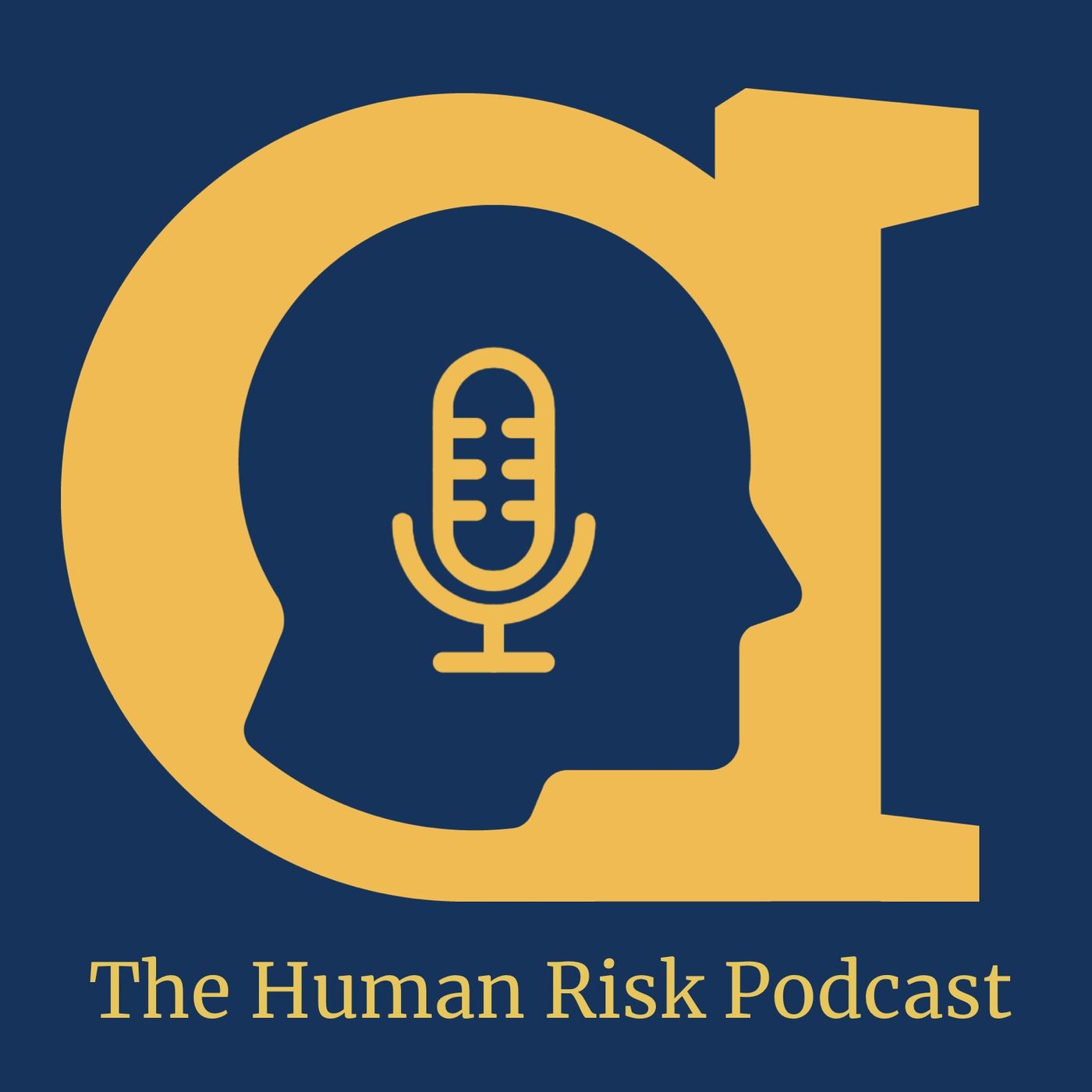276 episodes
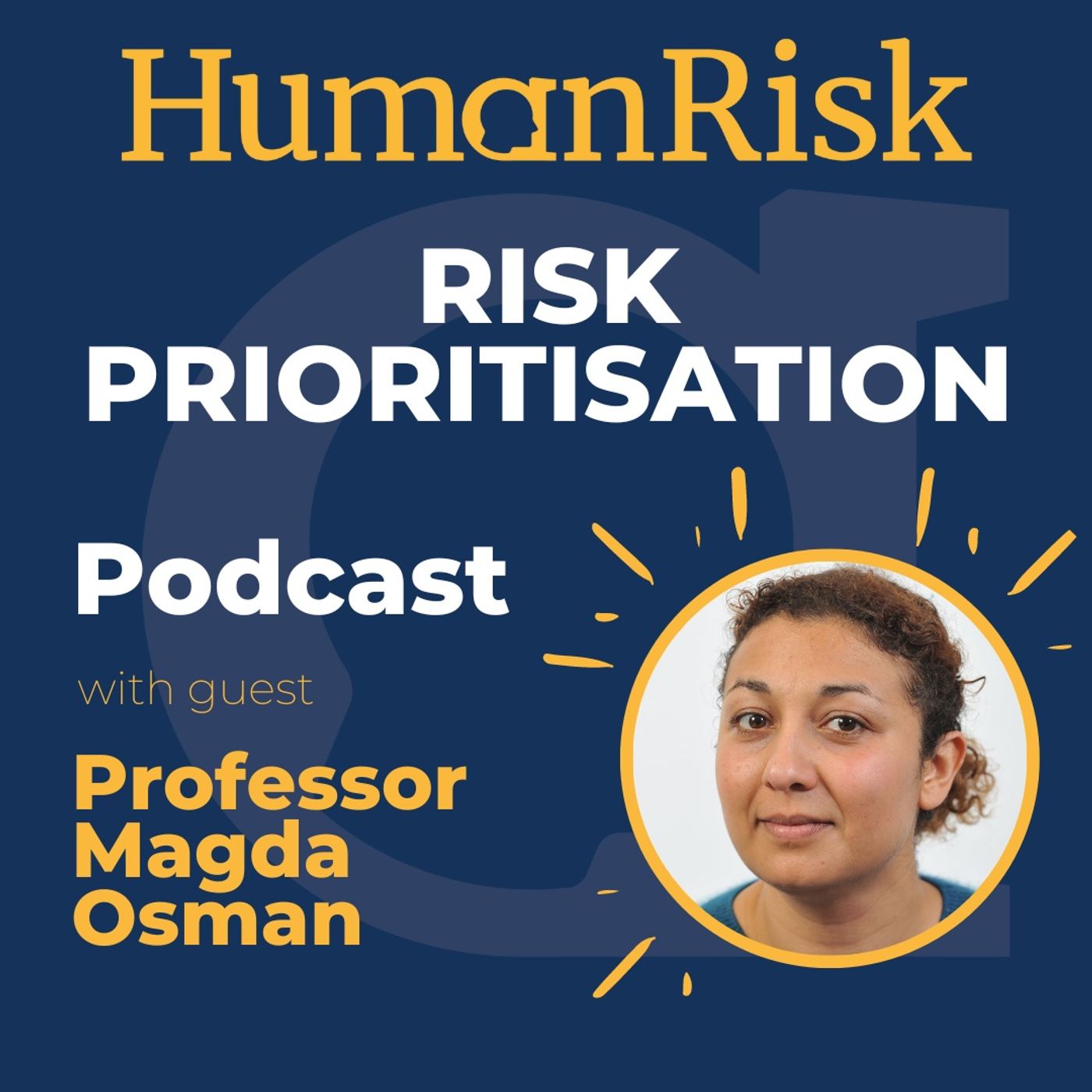

HOW, IN A WORLD OF LIMITED RESOURCES, CAN WE PRIORITISE RISK? Which ones should we focus on more than others? This isn't just something we need to think about in a work context. It also applies to our personal lives; where should we spend our money, time and headspace? My guest is a friend of the show who has appeared four times before (links below). PROFESSOR MAGDA OSMAN is HEAD OF RESEARCH and ANALYSIS AT THE CENTRE FOR SCIENCE AND POLICY, UNIVERSITY OF CAMBRIDGE, as well as PROFESSOR OF BASIC AND APPLIED DECISION-MAKING at that same institution. Magda is a psychologist by training, with a specific interest in decision-making under risk and uncertainty, folk beliefs in the unconscious, as well as an interest in examining the effectiveness of methods of behavioural change. In our discussion, we explore: __ __ and much, much more. To find out more about Magda, her research and her work, visit her website https://www.magdaosman.com/. You can also find her on LinkedIn. https://www.linkedin.com/in/magda-osman-11165138/ To hear previous episodes of the show featuring Magda (in the order they were recorded): 'ON BEHAVIOURAL INTERVENTIONS THAT FAIL' https://www.humanriskpodcast.com/dr-magda-osman-on-behavioural/ 'ON UNCONSCIOUS BIAS - WHAT IS IT & CAN WE TRAIN PEOPLE TO NOT DISPLAY IT?' https://www.humanriskpodcast.com/dr-magda-osman-on-unconscious/ 'ON COMPLIANCE, COERCION & COMPETENCE' https://www.humanriskpodcast.com/professor-magda-osman-on-compliance-coercion-competence/ 'ON MISINFORMATION' https://www.humanriskpodcast.com/professor-magda-osman-on-misinformation/
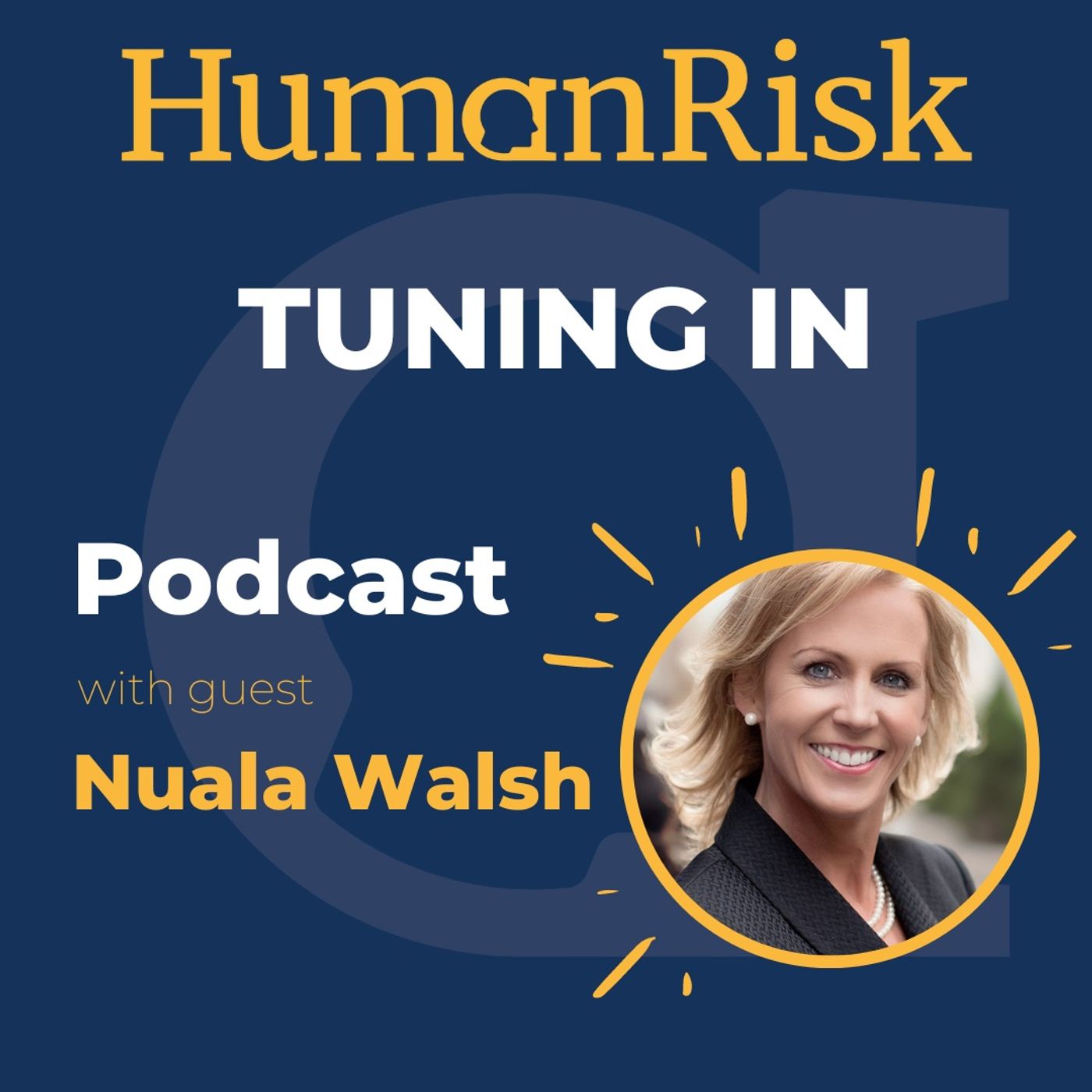

HOW CAN WE MAKE BETTER DECISIONS? By paying attention to good advice or information and ignoring the opposite. In a world where we're overloaded with data and opinions, it can be hard to determine what is good and what is bad advice. My guest NUALA WALSH, is the author of a new book called 'TUNE IN! HOW TO MAKE SMARTER DECISIONS IN A NOISY WORLD'. In it, she highlights how we make decisions and the risks of using the wrong information to make them. What are the risks of mishearing, misinformation and misjudgement, and what can we do to pay attention to helpful inputs and ignore unhelpful ones? In our discussion, we explore: __ __ and much, much more. To learn more about Nuala, her work and 'Tune In': https://www.nualagwalsh.com/
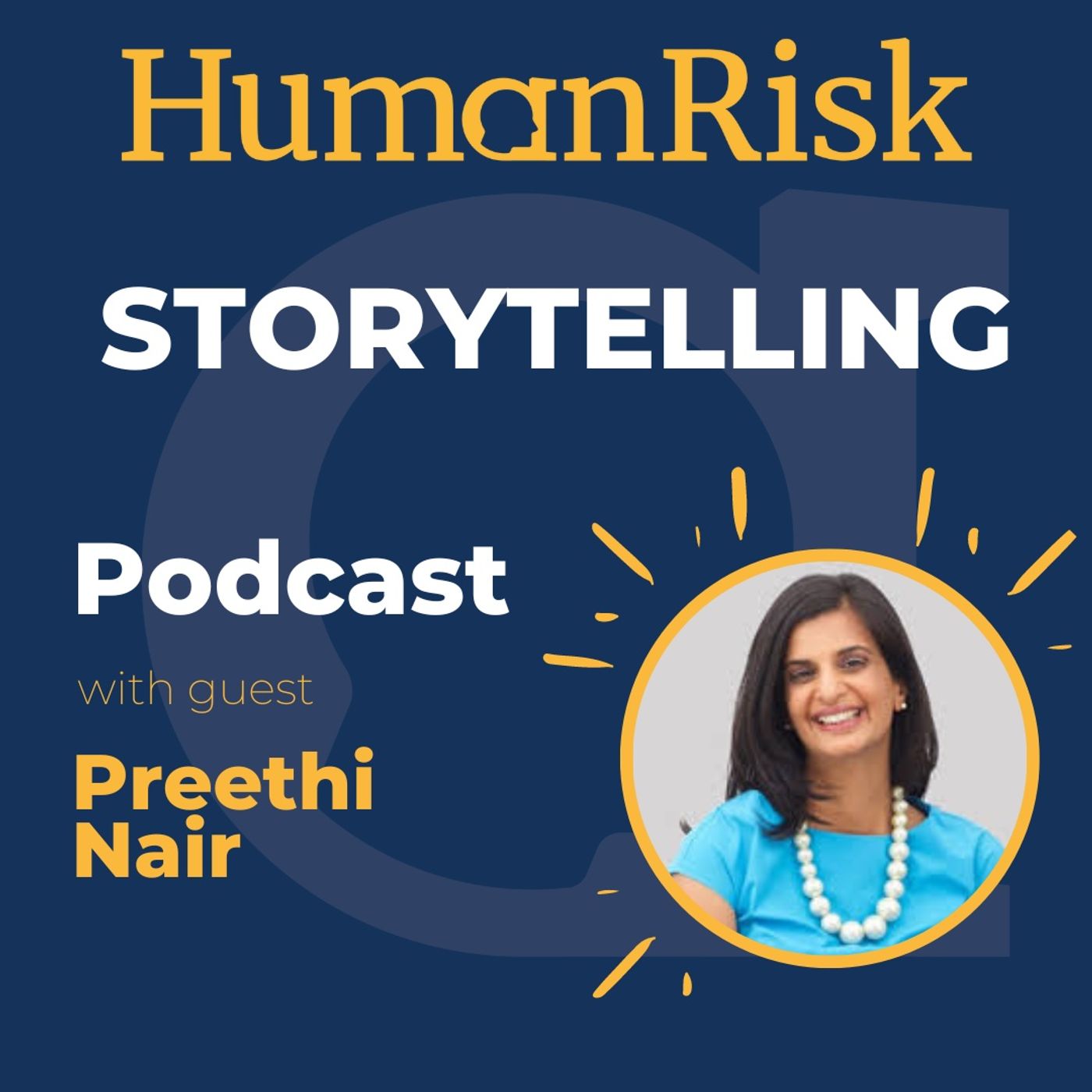

WHAT DOES STORYTELLING HAVE TO DO WITH MANAGING RISK? On this episode, I’m speaking to novelist, playwright, and screenwriter PREETHI NAIR. She also helps people who want to tell their stories to identify the one that will resonate and tell them in the best possible way. We all know the power of storytelling. It’s how we learn as kids and how we share information as adults. The risk angle here is that if we want people to do the things we want them to do, and not do the things we don’t, then stories are a powerful tool in persuading them. In our discussion, we explore: __ __ And much, much more. Including, of course, Preethi’s own story. ADDITIONAL EPISODE If you enjoy this episode, then I also recommend listening to my discussion with James Victore on “Creative Courage’. James helps people (in his words) to ‘get paid to do what they love’. Many of the topics we discussed here chime with that discussion. You’ll find it here: https://www.humanriskpodcast.com/james-victore-on-creative-courage/ LINKS To find out more about Preethi, her books and her consulting work - https://preethinair.com/ Preethi on LinkedIn - https://www.linkedin.com/in/preethi-nair-author-keynote-speaker-md-29471a4/ The NYTimes ‘Significant Objects’ study - https://significantobjects.com/ The Encyclopaedia Britannica - https://en.wikipedia.org/wiki/Encyclop%C3%A6dia_Britannica
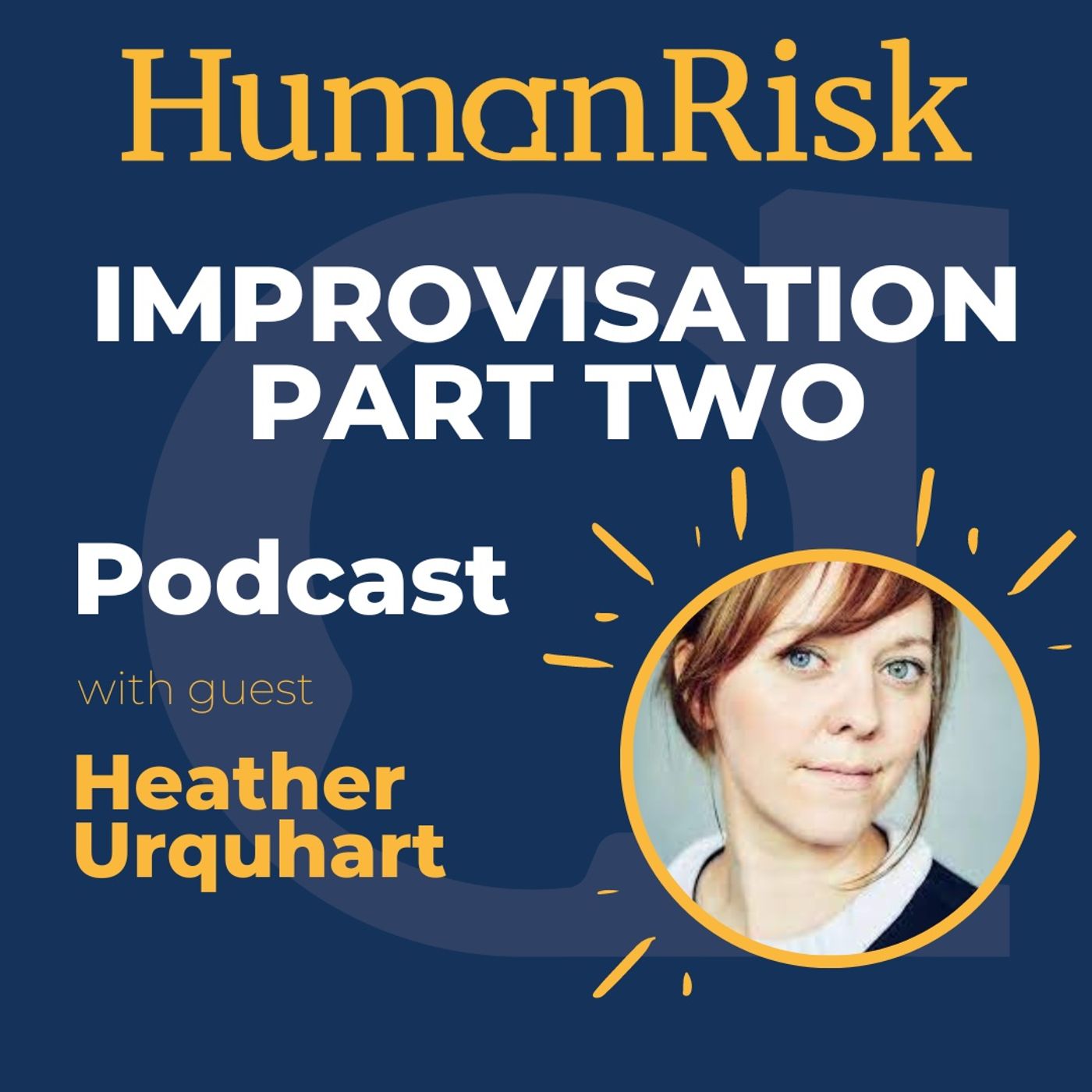

WHAT CAN BUSINESS LEARN FROM IMPROVISATION? If you listened to the previous episode of the shwo, you'll know the answer. If you haven't yet done so, then I recommend dojgn that before listening to this. Because this is Part Two of my discussion with Heather Urquhart and it lfows naturally on from Part One. MEET HEATHER URQHUHART My guest HEATHER URQUHART https://www.heatherurquhart.co.uk/ is a professional improviser who not only performs improv but also works to help busineses to manage uncertainty and drive creativity via her firm 'AND ALSO IMPROV https://andalsoimprov.com/'. In Part Two of our discussion, we look at the behind the scenes of improv. How can an improv compoany have a code of conduct? How do you design rules for a business that is about creativity? Why is it so difficult for people to say 'I don't know'. And much more. This is Part Two of a two part discussion. Part One is here: https://www.humanriskpodcast.com/heather-urquhart-on-improvisation-part-one/ LINKS The moment when Hollywood Director Michael Bay leaves the stage during a launch event: https://www.youtube.com/watch?app=desktop&v=R4rMy1iA268 Heather’s website: https://www.heatherurquhart.co.uk/ Her company ‘And Also’ Improv: https://andalsoimprov.com/ The MayDays, the Improv troop that heather is part of: https://www.themaydays.co.uk/speaker/heather-urquhart/ 'Showstoppers The Musical': https://showstopperthemusical.com/
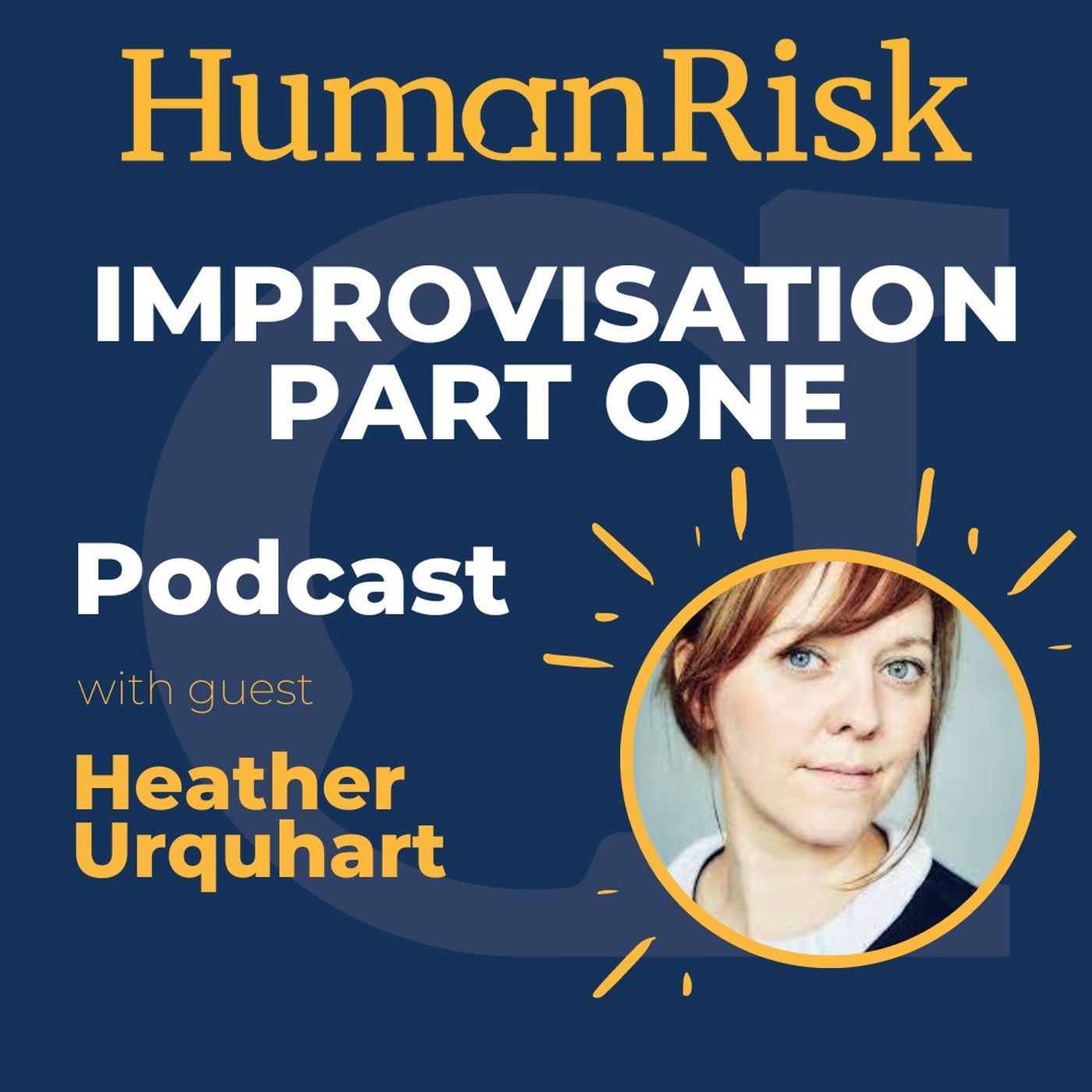

WHAT CAN BUSINESS LEARN FROM IMPROVISATION? On the face of it, a form of entertainment that involves making things up as you go along, seems to be filled with human risk and not at all helpful in the business world. But actually, the skills that improvisers use to entertain us, are incredibky useful in businesses to drive better decision-making, The techniques that allow them to respond to unexpecte situations or come up with creative ideas, are incredibly helpful in a business context. Having previously explored some of the dynamics of improv with Comedy Store director, author and perfomer Neil Mullarkey https://www.humanriskpodcast.com/neil-mullarkey-on-being-in-the-moment/, I wanted to dive a little deeper into the subject. MEET HEATHER URQHUHART My guest on this episode HEATHER URQUHART https://www.heatherurquhart.co.uk/ is a professional improviser who not only performs improv but also works to help busineses to manage uncertainty and drive creativity via her firm 'AND ALSO IMPROV https://andalsoimprov.com/'. In our discussion, we look how the dynamics inherent in improv can help to improce the quality of decision-making and ideas within businesses. Amongst other things, we look at how active listening, a non-judgmental approach to creative ideas can transform all aspects of an organization, not just the traditionally 'creative' ones. True to the theme, Heather and I set out on our conversation with an open agenda. Not only did that take us to some intesting and unexpected places, but it also meant that we just kept going. So much so, that there’s too much for just one episode. So, this is Part one of a two part discussion. Part Two is coming soon. LINKS My previous discussion with Neil Mullarkey: https://www.humanriskpodcast.com/neil-mullarkey-on-being-in-the-moment/ Heather’s website: https://www.heatherurquhart.co.uk/ Her compnay ‘And Also’ Improv: https://andalsoimprov.com/ The MayDays, the Improv troop that heather is part of: https://www.themaydays.co.uk/speaker/heather-urquhart/ 'Showstoppers The Musical': https://showstopperthemusical.com/
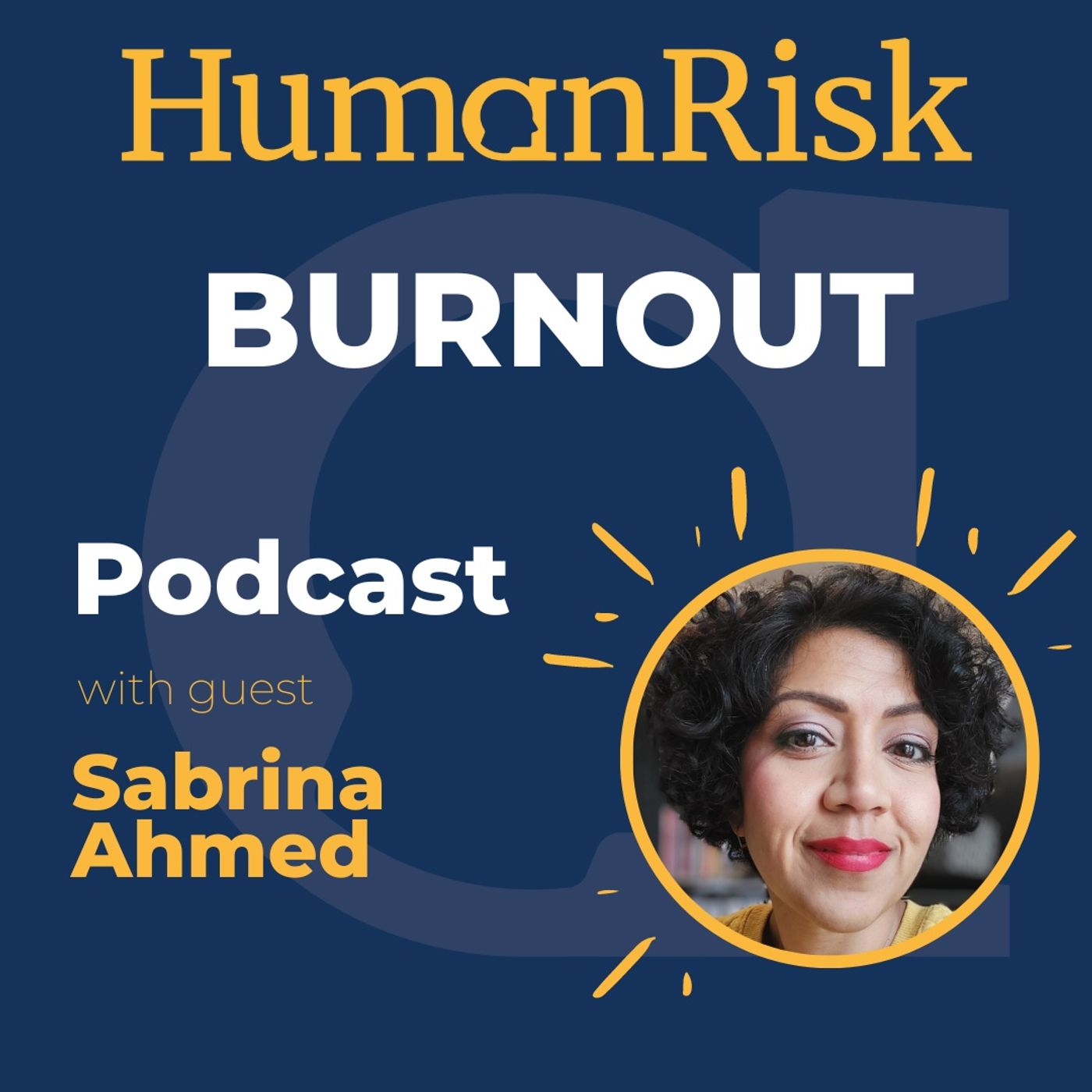

What is BURNOUT, and how can we prevent it? We're increasingly hearing about the idea of 'burnout', which the World Health Organisation has defined as a condition "Recent high profile resignations, including Jacinda Ardern the former PM of New Zealand and Jürgen Klopp, the Manager of Liverpool Football Club — both citing not having enough energy to continue to do their jobs — are merely illustrative of a dyanmic that can impact us all. On this episode, I'm speaking to SABRINA AHMED, who helps people to manage the risks of burnout using art, creativity, curiosity and playfullness. In our discussion, we explore: __ __and much,much more. SABRINA AHMED To find out more about Sabirna and the owrk that she does visit her website https://openintrovert.com/ You can find her on Twitter/X at: https://twitter.com/sabrinacoaching Sabrina's Substack blog: https://sabrinaahmed.substack.com/
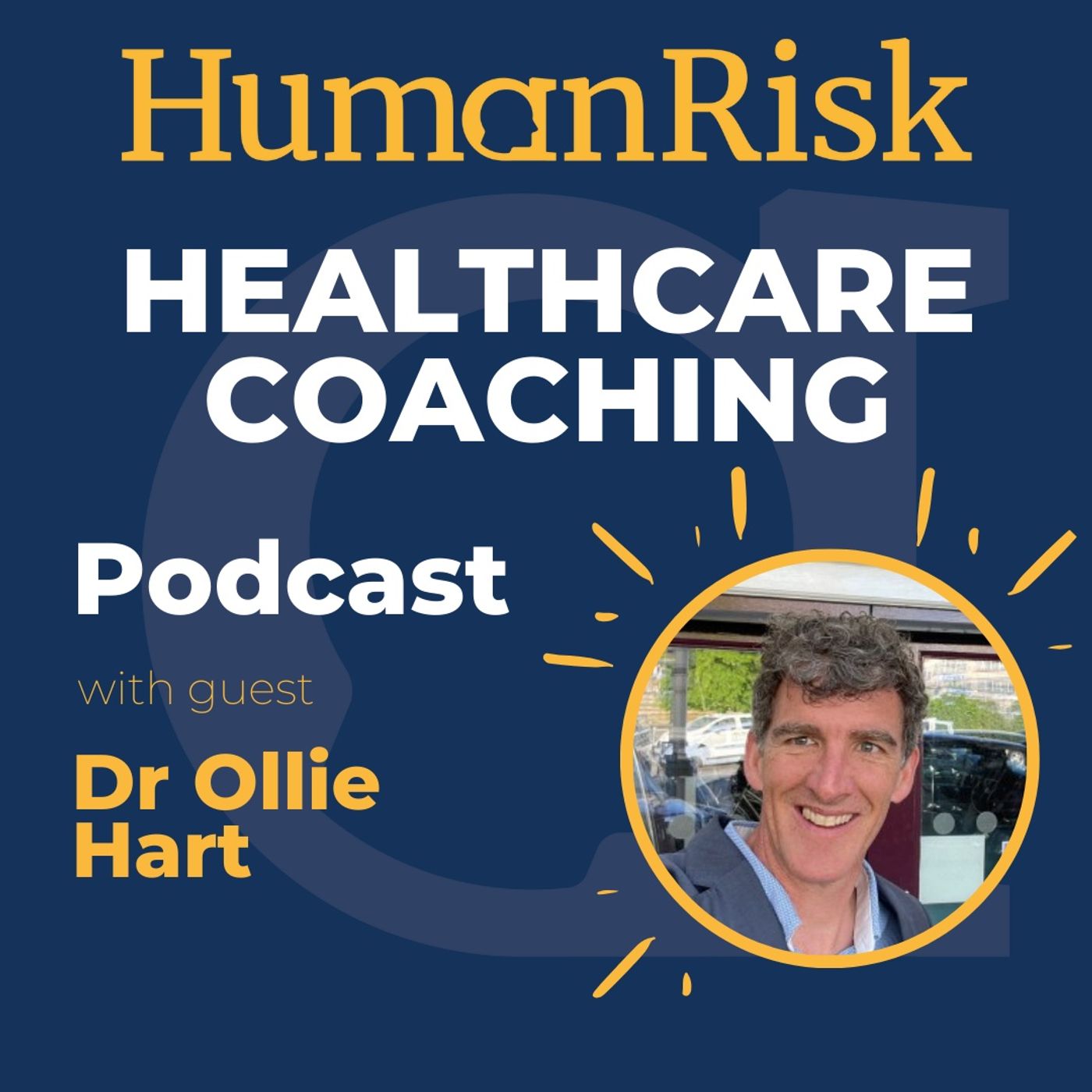

WHAT IS HEALTHCARE COACHING? If I say the word ‘doctor’ to you — in a medical, not academic, sense— you’ll probably think of someone in a white coat with a stethoscope who makes medical assessments and prescribes treatments and drugs to patients. Which, of course, is what they do do But a word that probably wouldn’t come to mind when you think of doctors is ‘coach’. Yet, that’s the role that my guest on this episode, Dr Ollie Hart, thinks is a key part of helping patients live longer, healthier lives. Having worked as a general practitioner in the UK’s NHS National Health Service, Ollie realised that in many cases, what would help patients weren’t prescriptions but rather the kind of support that you might, in other contexts, expect from coaches He’s the co-founder of a Healthcare Coaching business that seeks to empower patients as part of the support they receive. As you’ll hear, he’s not suggesting coaching as a replacement for all forms of medical treatment, but for certain conditions, supporting patients through coaching can be incredibly powerful in increasing overall well-being. In our discussion, we explore Ollie’s medical career, how he came to see the value in healthcare coaching and how and where it can help patients. As well, of course, where it is less effective. As you’ll hear, several decades ago — let’s not worry about exactly how many — Ollie and I were classmates. And because one or two of our teachers liked to have the class sat in alphabetical order — presumably so they didn’t need to memorise anyone’s name, we’d often sit next to each other. Thanks to LinkedIn, we recently reconnected and got talking. In doing so, we realised that although we’re working in very different fields, the fundamental principle of thinking about the humans whose behaviour we’re trying to influence — in his case, in a medical context, in mine a compliance and ethics one — is identical, which is why I really wanted to get him onto the show. I think this is a fascinating approach that illustrates how, if we want to solve problems — particularly those obviously relating to humans — where a behavioural approach of understanding what I refer to as ‘not how we would like people to behave, but how they are likely to behave’ can be really powerful. And not just in the medical field. The ideas Ollie is sharing have a much wider resonance. RESOURCES To learn more about Ollie and his work: Peak Health Coaching - www.peakhealthcoaching.com http://www.peakhealthcoaching.com Ollie on LinkedIn - https://www.linkedin.com/in/ollie-hart-47669340/ Ollie on Twitter/X - https://twitter.com/peakhealthcoach OTHER EPISODE If you liked this episode, then you might also be interested in: Niall Downey, a cardiothoracic surgeon who became an airline pilot - https://www.humanriskpodcast.com/niall-downey-on-mistakes/ Dr Gordon Caldwell on medical bureaucracy - https://www.humanriskpodcast.com/dr-gordon-caldwell-on-medical-bureaucracy/
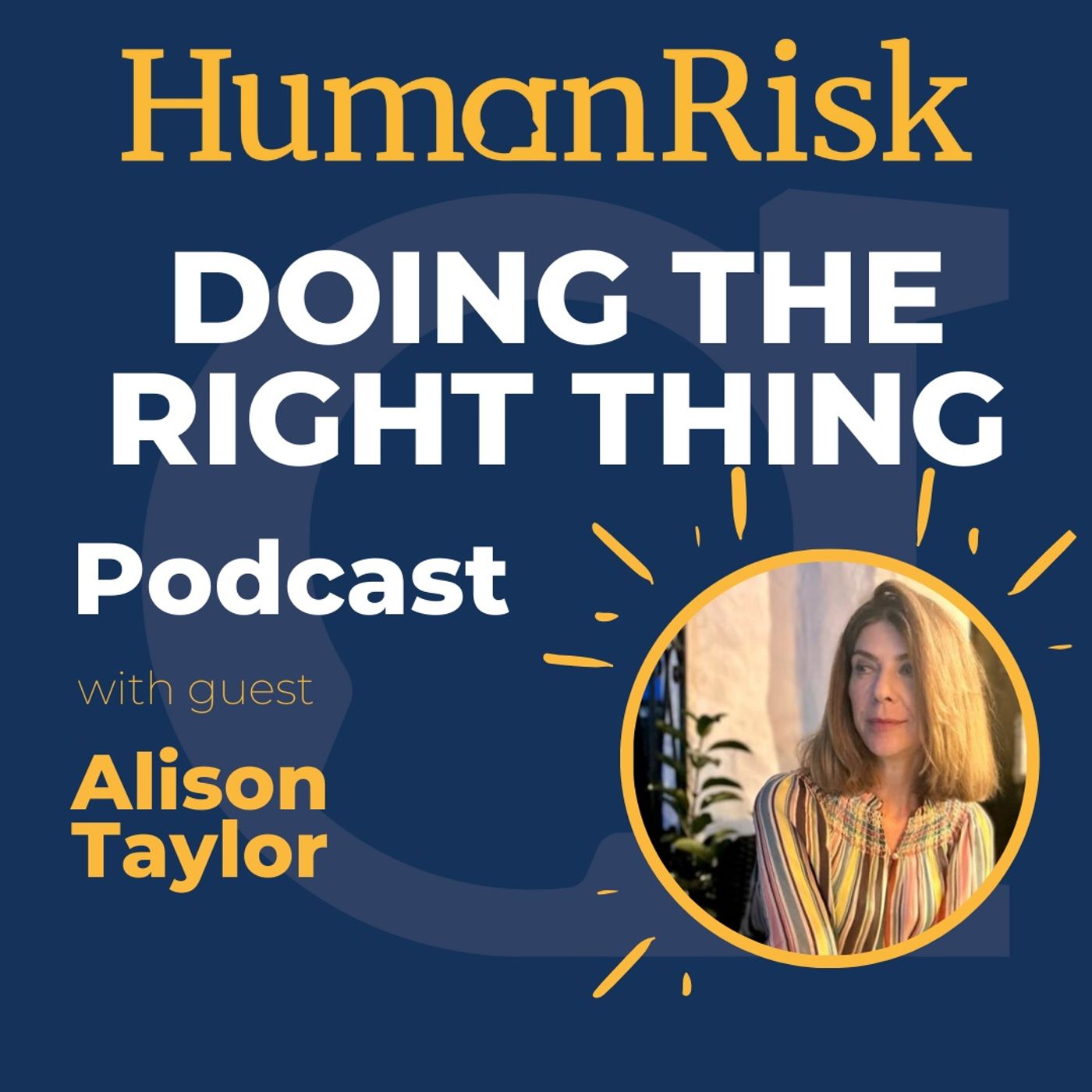

How can businesses do the right thing? What does that even mean and why does or should it matter? WHAT IS BUSINESS ETHICS? Business ethics used to be a case of dealing with things like bribery and fraud, which companies tried to — and often did — manage with rules and processes. But nowadays, in a world where every employee and consumer has the ability to go viral on social media, it’s a much harder dynamic to manage. Businesses are under increasing scrutiny, not just for their business practices and supply chains but also for their position on issues such as racial injustice and quality. The idea that they’re simply there to maximise shareholder value, while not breaking the law is no longer a tenable approach. MEET ALISON TAYLOR My guest on this episode is ALISON TAYLOR. She’s a friend of the show — this is her third appearance (links to the previous two below). Alison is a Clinical Associate Professor at NYU-Stern School of Business and Executive Director of Ethical Systems. She has spent the past two decades consulting with multinational companies on risk, anti-corruption, sustainability, human rights, culture and behaviour, stakeholder engagement, ESG, and ethics and compliance. She is also the author of a brand new book out this week called ‘HIGHER GROUND: HOW BUSINESS CAN DO THE RIGHT THING IN A TURBULENT WORLD’. WHAT WE DISCUSS In our discussion, we explore: __ __and much, much more. LINKS To find out more about Alison, her work at NYU and Ethical Systems and her book ‘Higher Ground’ visit her website: www.alisontaylor.co http://www.alisontaylor.co To hear the previous epsiodes of the show featuring Alison talking about: ETHICS: what is it, why does it matter? 🎧 👉 https://www.humanriskpodcast.com/alison-taylor-on-ethics-/ ESG: Environmental, Social & Governance 🎧 👉 https://www.humanriskpodcast.com/alison-taylor-on-environmental-social-governance/
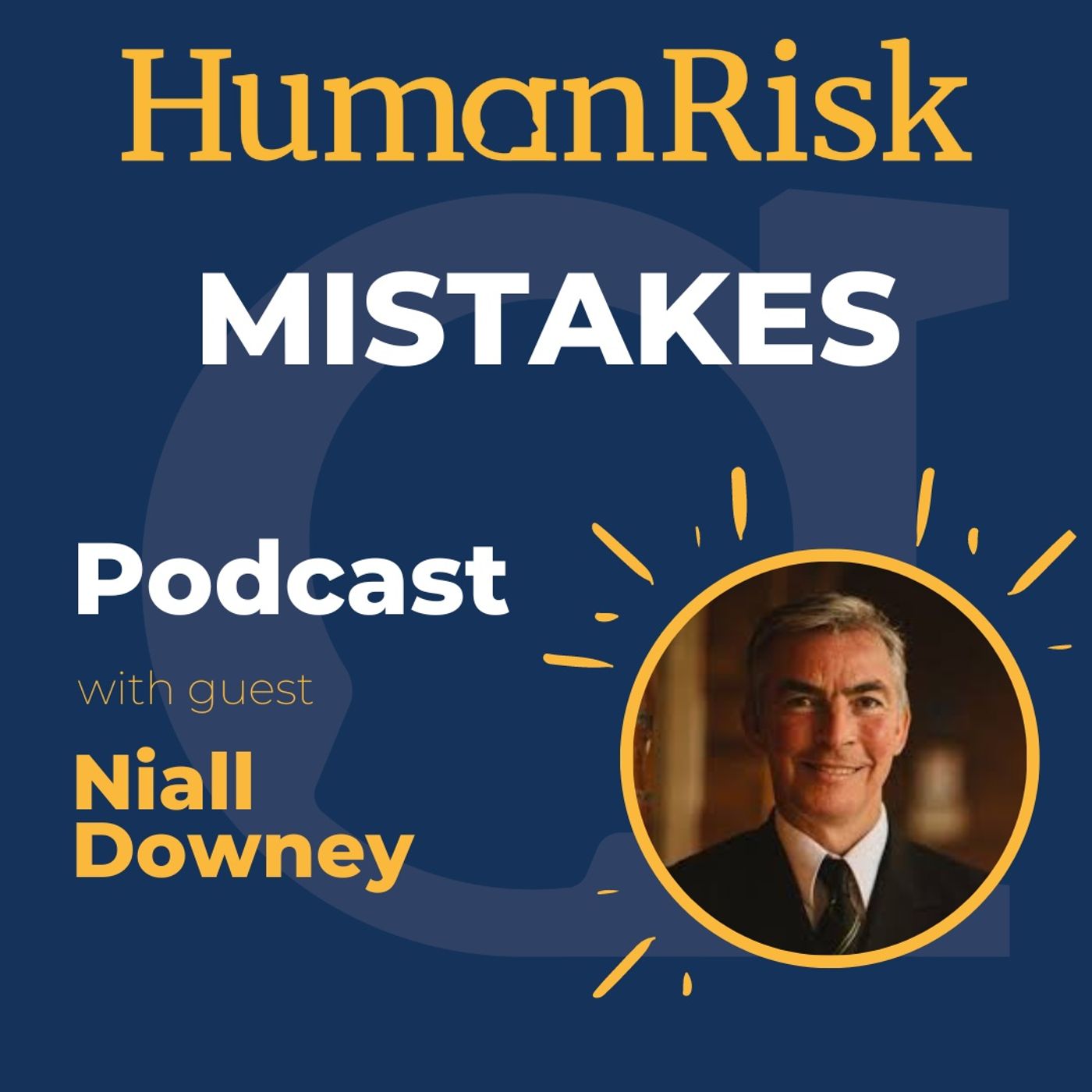

What happens when a surgeon decides to become an airline pilot? You get some amazing insights into mistakes, how they happen and what we can do to mitigate them. That surgeon and now pilot is my guest NIALL DOWNEY. He’s also the author of a book called ‘Oops! Why Things Go Wrong’: Understanding and Controlling Error’ He began his career as a doctor, where he becaeme a cardiothoracic surgeon. After twelve years of medical training, Niall decided to change course and retrained as an airline pilot with Aer Lingues, initially combining aviation with medicine by working as an Accident and emergency doctor before focusing full-time on aviation. If there’s one industry that knows how to manage risk, it’s airlines. While there might be issues with things like luggage and IT failure, when it comes to safety in the skies, the airline industry has a very good track record, particularly when we consider the number of planes in the sky at any one time. Niall has made it his mission to bring the methods aliens use to mitigate risk into the medical world. In our discussion, we explore: __ __and much, much more. RESOURCES To learn more about: Niall on Social Media Twitter/X: https://twitter.com/nialldowney LinkedIn: https://www.linkedin.com/in/niall-downey-84abb433?originalSubdomain=uk Niall’s firm Framework Health: http://frameworkhealth.net/ Niall’s book ‘Oops! Why Things Go Wrong’: Understanding and Controlling Error’ Liffey Press (publisher): https://theliffeypress.com/oops-why-things-go-wrong-by-niall-downey.html
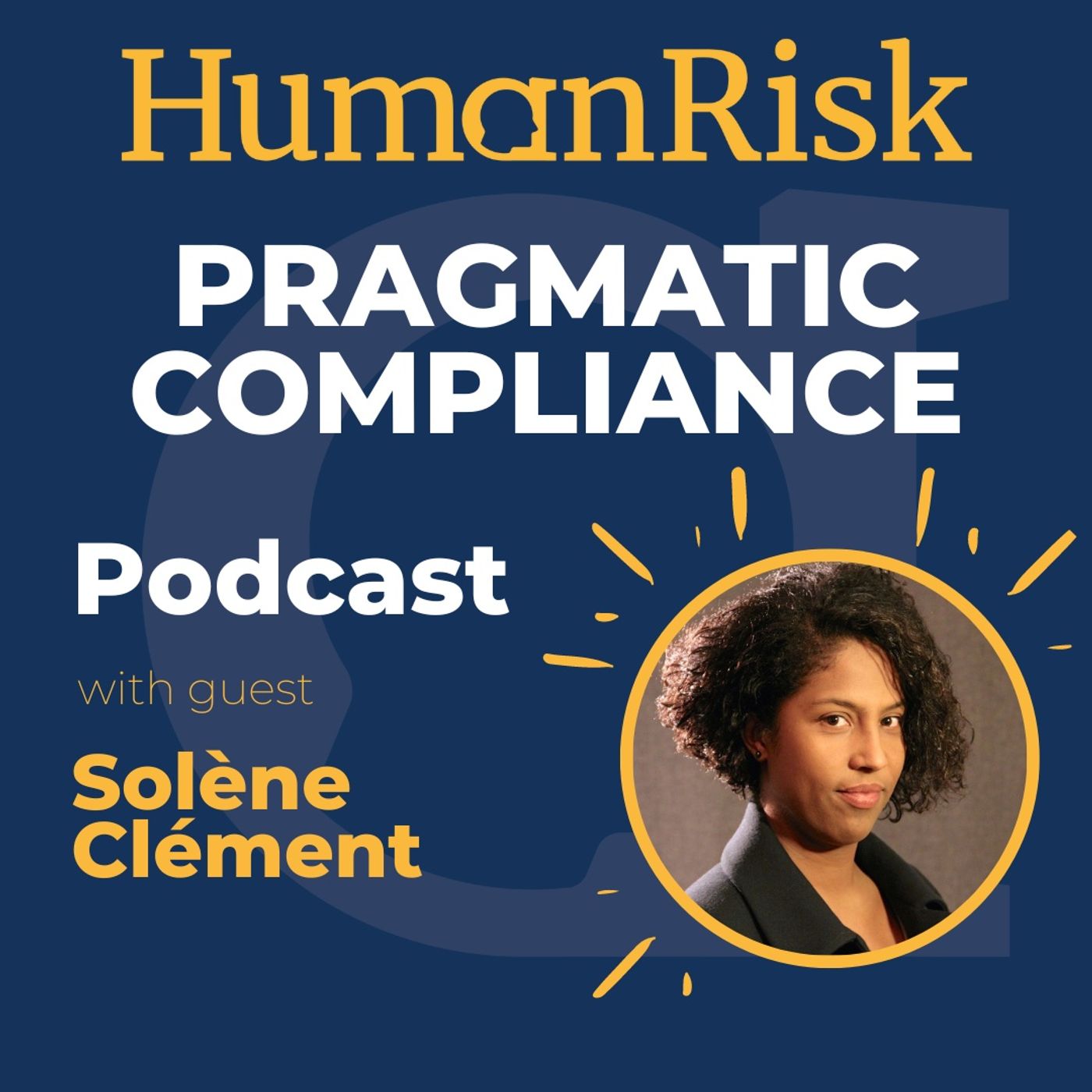

What happens when companies outside financial services are required to comply with regulations such as AML (ANTI-MONEY LAUNDERING)? As we all know from our personal experiences of banks that want to verify who we are and where money is coming from or going to, the rules are complex. That’s challenging enough if you’re a bank. But if you’re an art dealer, a real estate agent or someone else working in the field of high-value goods, that’s even harder. Particularly if the rules aren’t something you’re familiar with. My guest on this episode, SOLÈNE CLÉMENT, is a lawyer who supports clients in this space in meeting their regulatory obligations in a pragmatic way. That doesn’t mean not complying with the rules or bending them. It means bringing the gap between regulatory objectives and the practicalities of delivering them on the ground. She’s also the President of the ANTI-MONEY LAUNDERING OBSERVATORY, a body that seeks to get regulators to understand the practical challenges of their regulations and those subject to them to improve their knowledge and understanding of them. To find out more about Solène and her work, visit: https://clementavocats.com/ For more on the Anti-Money Laundering Observatory (OLAB): https://clementavocats.com/index.php/accueil/olab/
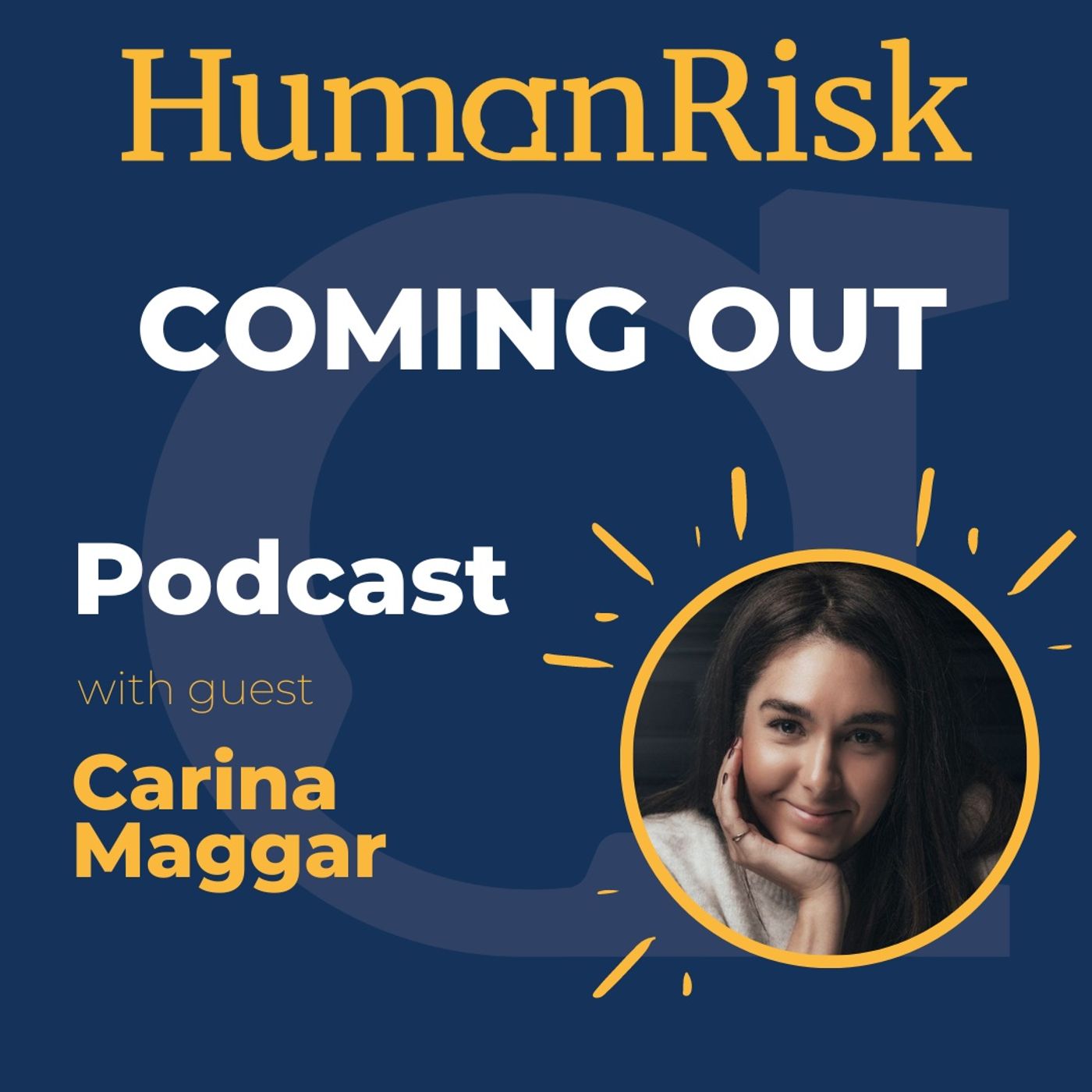

Authenticity is often praised, and inauthenticity is criticised. We want people to be themselves. But what happens if the society we’re in isn’t supportive or even hostile toward who we really are? Or we don’t yet know. That’s the challenge facing many LGBTQ+ people in relation to COMING OUT. It’s the subject of a brand new book called ‘COUNTLESS SLEEPLESS NIGHTS’ which tells the real-life stories of people who, because of their sexuality, have had to or are dealing with the challenges of whether, how and when to come out. Not just people who live in societies where they have rights but also those living in regimes where being honest about your sexuality risks being imprisoned or killed. The book’s author is CARINA MAGGAR, and she’s my guest on this episode. Carina is a creative copywriter who has been on the show before talking about her first book ‘HOW TO MAKE WORK NOT SUCK’. The book came about because Carina is herself gay and had her own coming out experience. I’m fascinated by this subject on a number of levels. As a straight man, I’ve never had to contend with the challenge of coming out and what that means. Yet it’s a very common experience, and I think it’s helpful to have an appreciation of what others are going through. I hope this episode can make those of us who have no experience of coming out to be more empathetic towards those who are or might go through it. Then there’s a human risk angle. If we want to get the best out of everyone — either societally or in a work context — then we need to be inclusive and not have people having to pretend they’re something they’re not. Spending your entire life being unable to be honest is debilitating, and it doesn’t bring the best out of anyone. Finally, and most importantly, it’s about shining a light on the fact that some people can’t be who they really are, and their lives are in danger as a result. That’s not right, and we need to talk about it. RESOURCES To learn more about Carina and her first book ‘How To Make Work Not Suck’ go to her website: https://www.carinamaggar.com/ To order ‘Countless Sleepless Nights’: https://www.laurenceking.com/products/countless-sleepless-nights To hear Carina’s previous appearance on the show: https://www.humanriskpodcast.com/carina-maggar-on-how-to-make-work-not-suck/
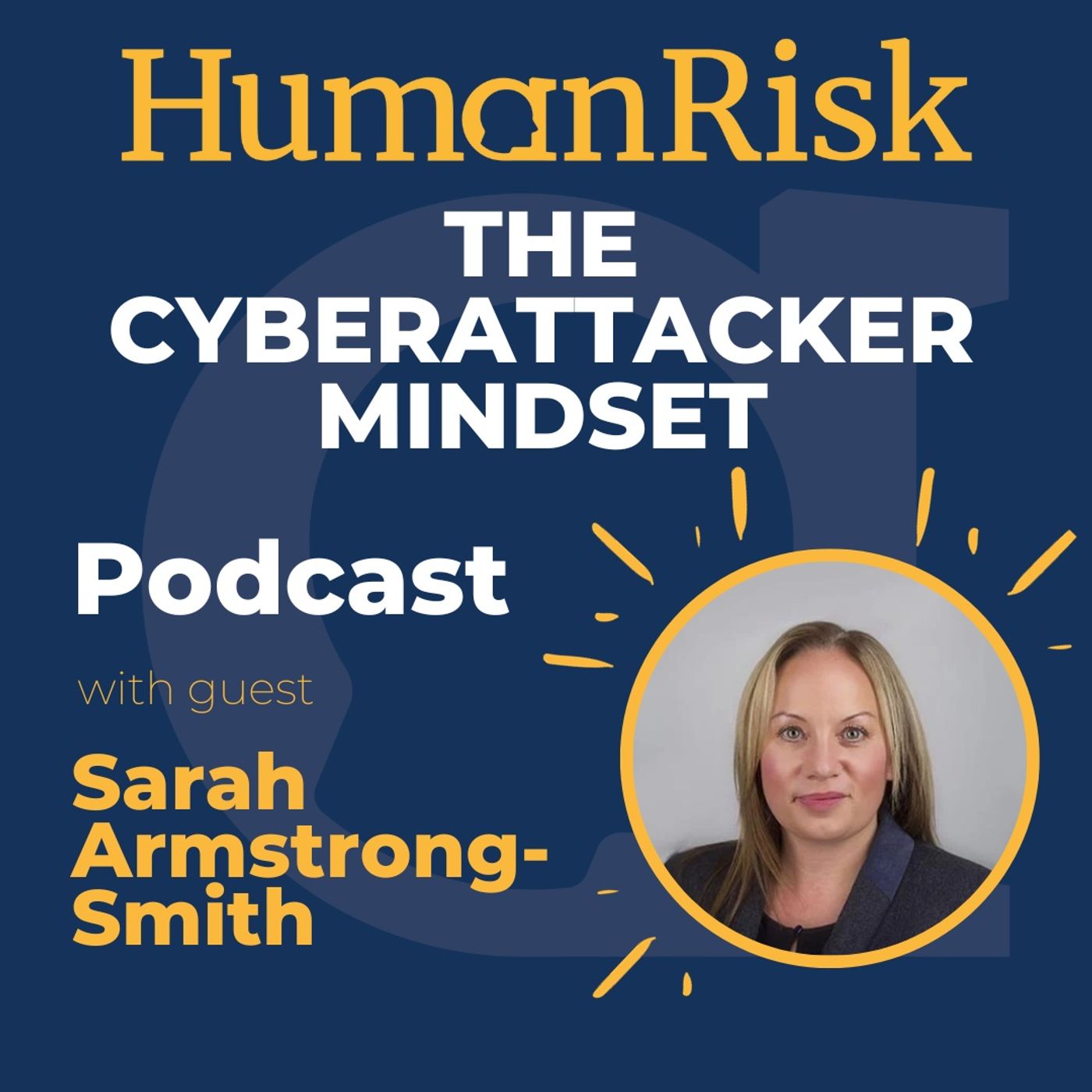

WHAT’S THE MOST EFFECTIVE WAY TO MANAGE CYBER RISK? The obvious answer is to have more sophisticated security systems. My guest on this episode thinks the answer is humans. That’s because behind every cyber attack, there is a human, and the biggest point of vulnerability within an organisation is its humans. If we can better understand humans and how they behave, we can be more effective at managing cyber risk. That’s the view of my guest on this episode, SARAH ARMSTRONG-SMITH. She’s the Chief Security Advisor at Microsoft and a leading expert in the cybersecurity space. She's also the author of a brilliant new book called UNDERSTANDING THE CYBER ATTACKER MINDSET, in which she explores the human dynamics behind cyber attacks. In other words, why do the people who launch cyberattacks do so? If we can understand that, we can start to focus on the root cause of the problem. In our discussion, we explore: __ __And much much more. To learn more and to pre-order Sarah’s new book ‘UNDERSTAND THE CYBER ATTACKER MINDSET: BUILD A STRATEGIC SECURITY PROGRAMME TO COUNTERACT THREATS’: https://www.amazon.co.uk/Understand-Cyber-Attacker-Mindset-Counteract/dp/1398614289# https://www.amazon.co.uk/Understand-Cyber-Attacker-Mindset-Counteract/dp/1398614289 You can find Sarah: On LinkedIn: https://www.linkedin.com/in/sarah-armstrong-smith On Twitter/X: https://twitter.com/SarahASmith75
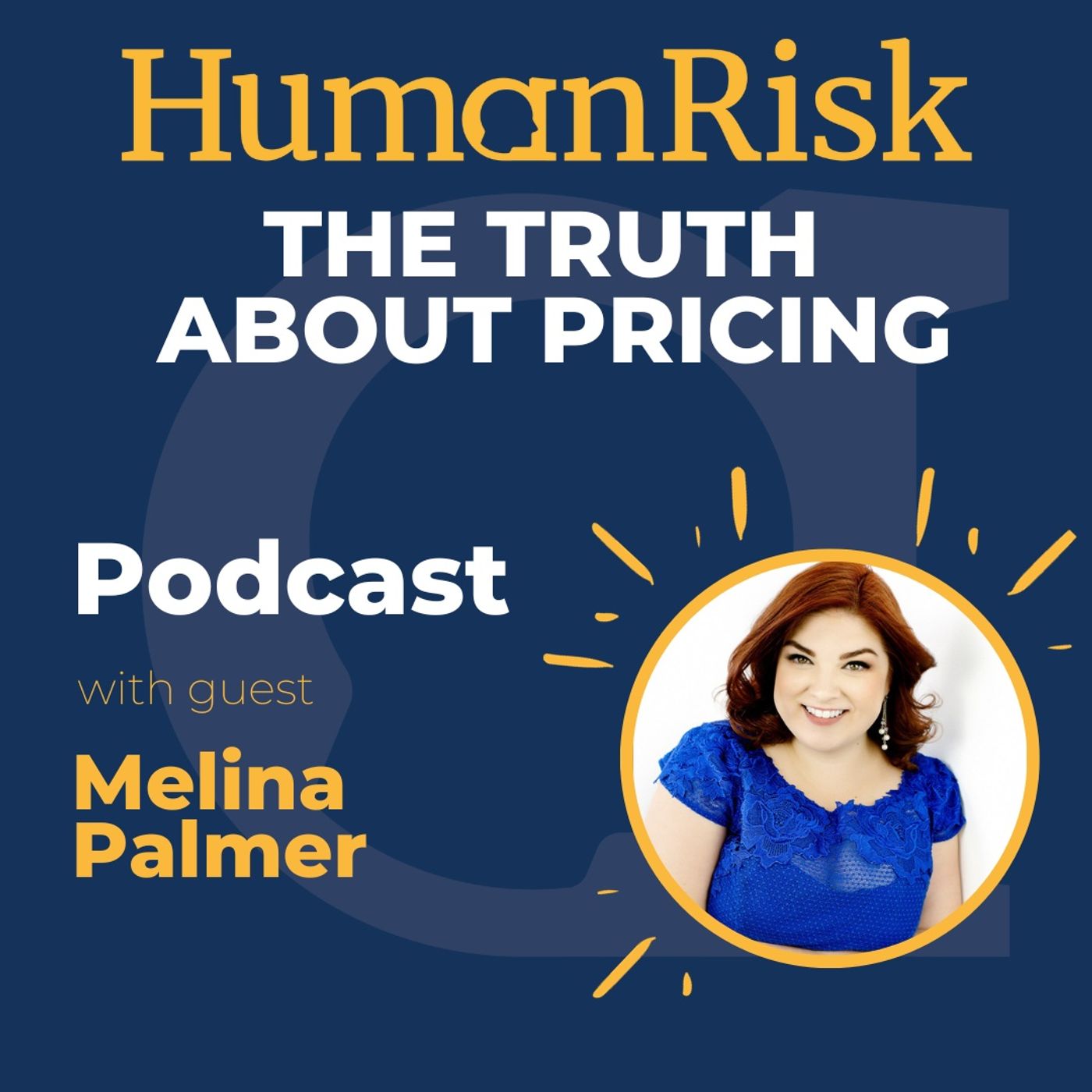

What determines the price of an item or service? How can we price things so that people want to buy them but also so that we feel it’s fair? Whether (like me) you’re in business and have to sell, or you’re negotiating a salary or looking to buy or sell a house or a car, pricing matters. My guest on this episode, MELINA PALMER, is the author of a new book, THE TRUTH ABOUT PRICING: HOW TO APPLY BEHAVIORAL ECONOMICS SO CUSTOMERS BUY (VALUE BASED PRICING, WHAT YOUR BUYER VALUES). She’s also the host of the BRAINY BUSINESS PODCAST and has been on the show before (links below). TOPICS In our discussion, we explore: __ __and much, much more LINKS To find out more about Melina’s Brainy Business podcast and her work as a speaker, coach and trainer visit thebrainybusiness.com http://thebrainybusiness.com To download free sample chapters from her books at brainy business.com/human risk Find her on LinkedIn https://www.linkedin.com/in/melinapalmer/ To her her previous apparenace on this show: https://www.humanriskpodcast.com/melina-palmer-on-using-behavioural/ On the show, we referred to: __ __
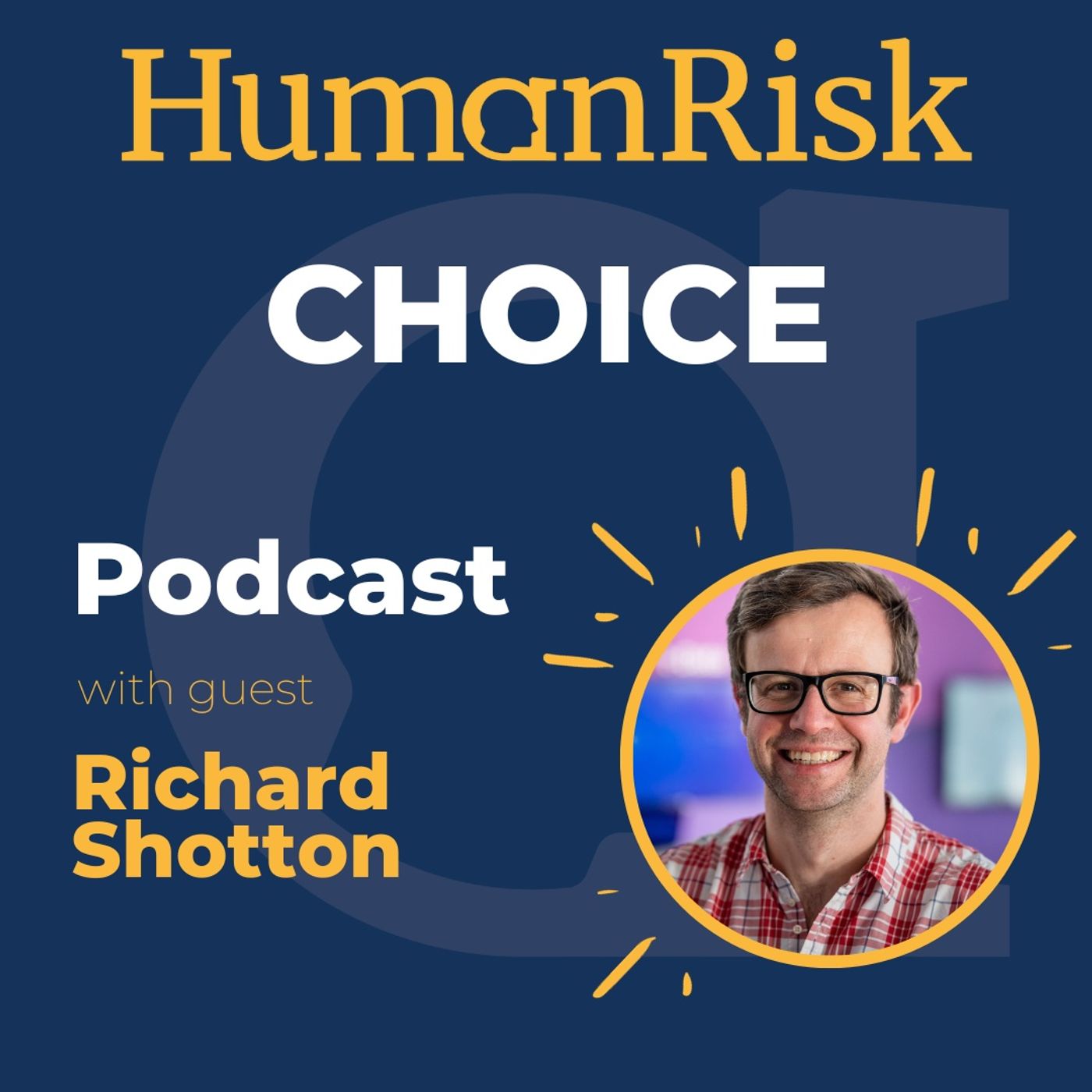

What drives the choices we make, and how can we influence the choices that others make? On this episode, I’m speaking to an expert in human decision-making. RICHARD SHOTTON is a behavioural science practitioner who has written two best-selling books, ‘ THE CHOICE FACTORY’ and ‘THE ILLUSION OF CHOICE’. Having begun his career in marketing, Richard now helps companies apply behavioural science to solve problems, particularly, as the titles of his books imply, when it comes to influencing the choices people make. During our discussion, we talk about: __ __And much, much more. What I love about listening to Richard is that he’s not just sharing his deep technical knowledge in ways that are easy to digest; he’s also very good at coming up with practical ideas for how to deploy Behavioural Science to meet objectives. And he’s great fun to talk to. LINKS and his company - https://www.astroten.co.uk/ Find him on Twitter/X - https://x.com/rshotton? and on LinkedIn - https://www.linkedin.com/in/richard-shotton/ Richard’s first book ‘The Choice Factory’ - https://www.astroten.co.uk/the-choice-factory His latest book ‘The Illusion of Choice’ - https://www.harriman-house.com/illusionofchoice The ‘Astroten’ Hofling Hospital Experiment - https://en.wikipedia.org/wiki/Hofling_hospital_experiment The ‘Stolen Thunder Effect’ - https://www.ojp.gov/ncjrs/virtual-library/abstracts/effects-stealing-thunder-criminal-and-civil-trials An example of Zanussi’s Appliance Of Science ad campaign - https://youtu.be/DWbnxCe9xFc?si=wnaabpZrzMUA8kNc The Keat’s heuristic - https://en.wikipedia.org/wiki/Rhyme-as-reason_effect The McGlone & Tofighbaksh Experiment - https://www.sciencedirect.com/science/article/abs/pii/S0304422X99000030 Monadic Testing - https://conjointly.com/blog/what-is-monadic-testing/ Professor Robert Cialdini’s research on the Petrified Wood Forest in Arizona - https://www.tandfonline.com/doi/full/10.1080/15534510500181459
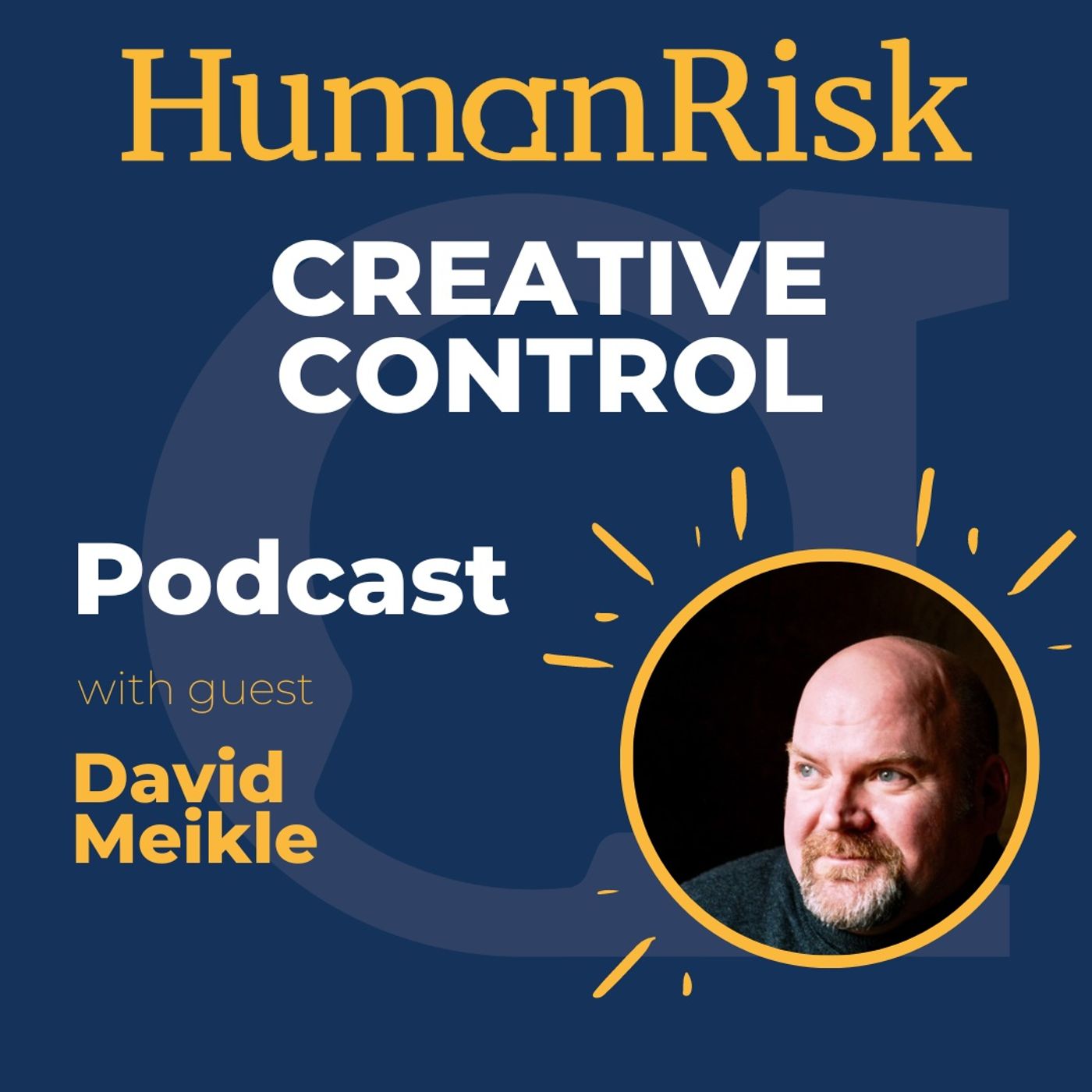

How can we manage people who are doing creative work? On the one hand, letting someone do what they want feels incredibly risky. On the other hand, creativity requires a degree of freedom, experimentation and agency. That’s a particular problem in the creative fields, but it’s also a broader challenge. In the 21st century, the jobs people are doing are increasingly ones that require some element of creativity. CREATIVITY is that it doesn’t always lend itself to being managed in traditional ways. Unlike setting someone a task where they slavishly need to follow instructions, creative tasks require a different form of supervision. The challenge with that is that as organisations try to mitigate the risk of creative activities, it’s very easy to end up in situations where responsibility is transferred for the creative task, but the requisite amount of control to deliver it isn’t. My guest is DAVID MEIKLE. He’s a consultant to the advertising market, where he helps companies to be more effective at hiring and managing advertising agencies. To learn more about David and his books visit https://tuningup.co.uk/ LINKS TO TOPICS WE DISCUSS: The podcast where Jon Evans interviews Dr Ian McGilchriest: https://www.youtube.com/watch?v=tY89D1UC9Dw Iain’s website: https://channelmcgilchrist.com/ The Hamlet cigar advertisements (14:55) https://www.youtube.com/watch?v=hJqN7RNeitw The Sainsbury’s Mog The Cat advertisement (18:15): https://www.youtube.com/watch?v=kuRn2S7iPNU The Cadbury gorilla advertisement (18:18): https://www.youtube.com/watch?v=La7B8mBnTXs The Ocean Spray advertisement (19:28): https://www.thedrum.com/news/2020/10/07/ocean-spray-finally-reacts-viral-skateboarding-tiktok Orlando Wood of System One Group: https://system1group.com/team/orlando-wood Anthony Bourdain’s Kitchen Confidential: https://en.wikipedia.org/wiki/Kitchen_Confidential_(book) Blair Enn’s Win Without Pitching Manifesto: https://www.winwithoutpitching.com/the-manifesto/
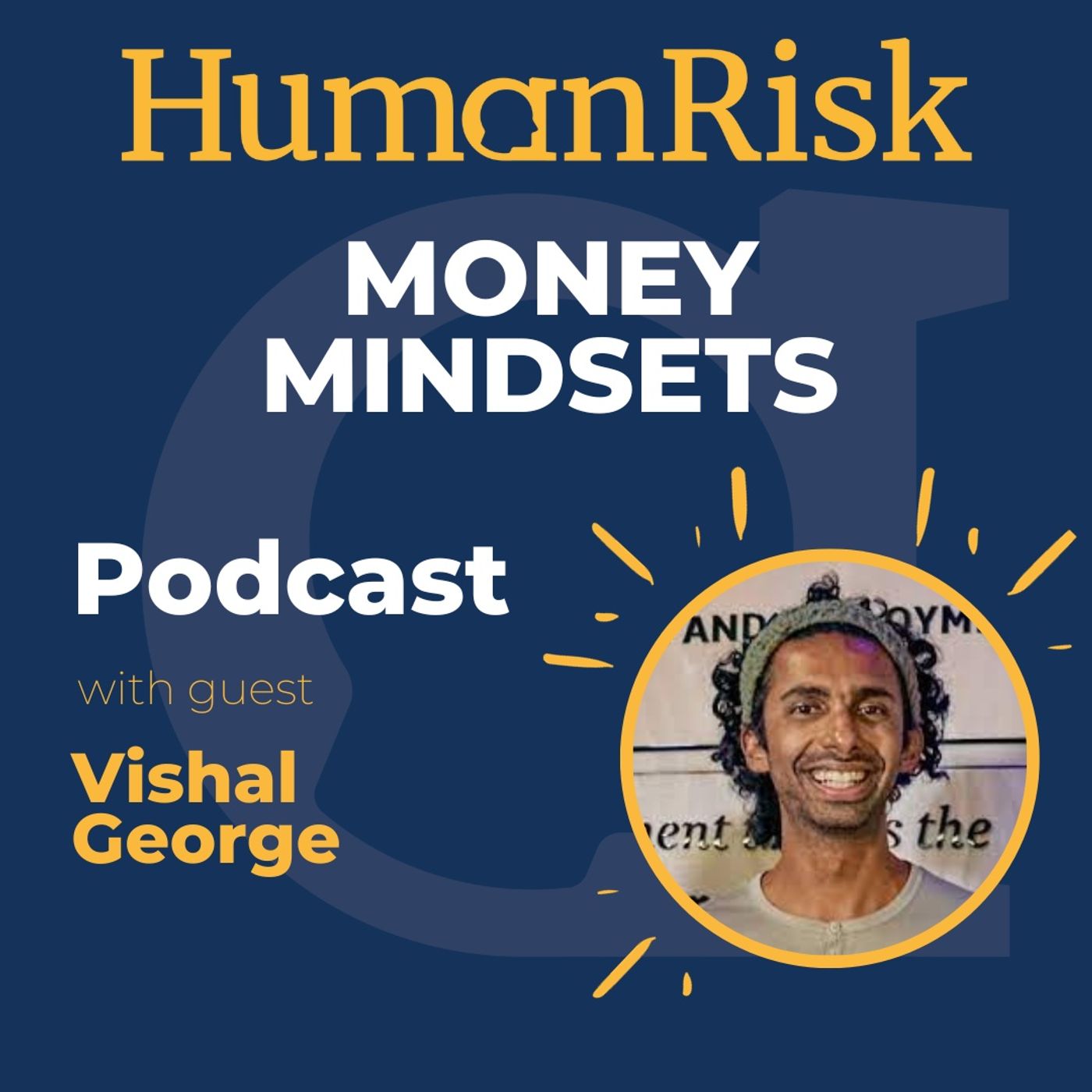

Why do we sometimes make bad decisions in relation to money and what can we do about it? My guest, VISHAL GEORGE, is a Behavioural Scientist who has recently published a book called ‘MONEY MINDSETS: SCIENCE-BASED STORIES TO REWIRE YOUR MONEY BELIEFS, GOALS, & HABITS’. In it, he explores that he way we behave when it comes to money, comes from beliefs about it, that we’ve adopted from our families, socio-cultural environment, and significant life events. They’re almost like scripts that are handed to us. Yet, often, we don't even know who the author is of our scripts. What, asks Vishal, if we can rewrite our own money story? The idea behind his book isn’t to change what we do with our money. Rather, it offers mindsets to change how we think about money. If we become aware of why we do what we do with our money, we can make sure our behaviours with it are aligned with our priorities. Since many incidents of huamn risk are caused by money, this topic is perfect for the show. In our discussion, we explore how Vishal came to write the book and what he hopes to acheive with it. I also get some thoughts from him on how this impacts his approach to business and what he’s learend from his reasearch. And he turns the tables and asks me a question. RESOURCES To learn more about Vishal, his compnay ‘Behavioural By Design’ visit https://www.behaviouralbydesign.com/ For more on his book ‘Money Mindsets’ https://www.behaviouralbydesign.com/money-mindsets To read about Diversifi, the global Behavioural Science practitioner network that both Human Risk and Behavioural By Design are part of, visit https://www.diversifiglobal.com/ Mount Taranki, the mountain Vishal is trying to climb: https://en.wikipedia.org/wiki/Mount_Taranaki The Save The Change program that encourages saving: https://www.asb.co.nz/banking-with-asb/save-the-change.html
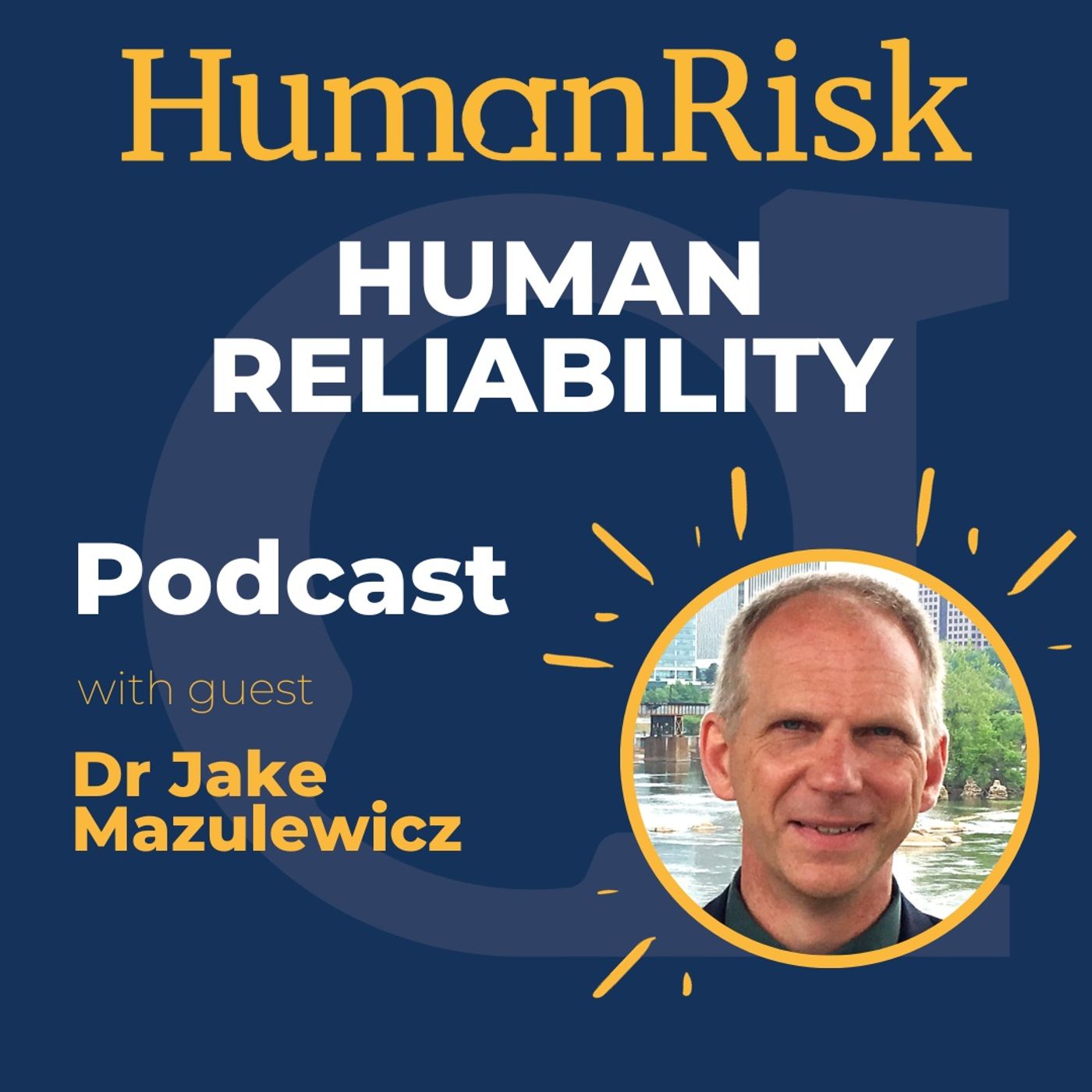

What do you think of when you hear the word 'ERROR'? It's highly likely you'll think of it negatively as a defect. The obvious way to manage defects, particularly in safety-critical industries, is to have detailed procedures, strict compliance, and zero tolerance for errors. But we know that this doesn't always work. After all, if it did, we'd have far fewer errors. My guest on this episode takes a different approach. He specializes in helping organizations, particularly safety-critical ones where the cost of getting something wrong can be death or injury, to reduce errors, improve safety and build trust. He calls this human reliability. His name is DR. JAKE MAZULEWICZ, and he's been a firefighter, an emergency medical technician and a military paratrooper. Nowadays, he brings all of those experiences to bear in helping organizations design processes and cultures that allow humans to manage the complexities that don't always allow themselves to be neatly codified into standard procedures. As you'll hear, he's got some fascinating ideas about designing safety models that flex to meet the situation's needs. KEY MOMENTS IN THE SHOW (MINS:SECS) 02:14 — Dr. Jake’s background 05:25 — Mechanistic vs. Adaptive systems 06:28 — The big problem: too many leaders treat ALL systems as Mechanistic systems 09:10 — What to say to a commercial pilot when you’re walking off their aircraft after the flight lands 10:40 — Four work guidance modes 11:00 — 1) PROCEDURES 11:53 — 2) GUIDELINES like, “." 13:00 — 3) PRINCIPLES like “." 21:20 — 4) TACIT KNOWLEDGE — 26:40 — “l.” 31:10 — How one team of electricians dramatically improved safety by using FEWER procedures 35:57 — Letter of the law vs. spirit of the law 38:20 — Have you heard of Philip K. Howard?... ".” 42:10 — We write rules when we don’t have enough trust 44:55 — Build trust by overcommunicating your intentions 45:25 — “Commander’s Intent” in military mission plans 47:55 — Listen for "Weak Signals" like hearing, “" 50:40 — Stay resilient by catching a system before it goes “exponential” 54:00 — Chris Argyris’ 17-word, 4-step recipe for creating a toxic work culture 57:10— A new Early Warning System 58:20 — Ask an expert, “What’s a 'Weak Signal' in your field, and what does it mean?” 1:04:55 — Why a non-punitive approach is so helpful and so uncommon 1:10:10 — How to get in touch with Dr. Jake — reliableorg.com FURTHER INFORMATION To find out more about Praxtical Human Performance For Leaders visit www.reliableorg.com LinkedIn: https://www.linkedin.com/in/jake-mazulewicz/
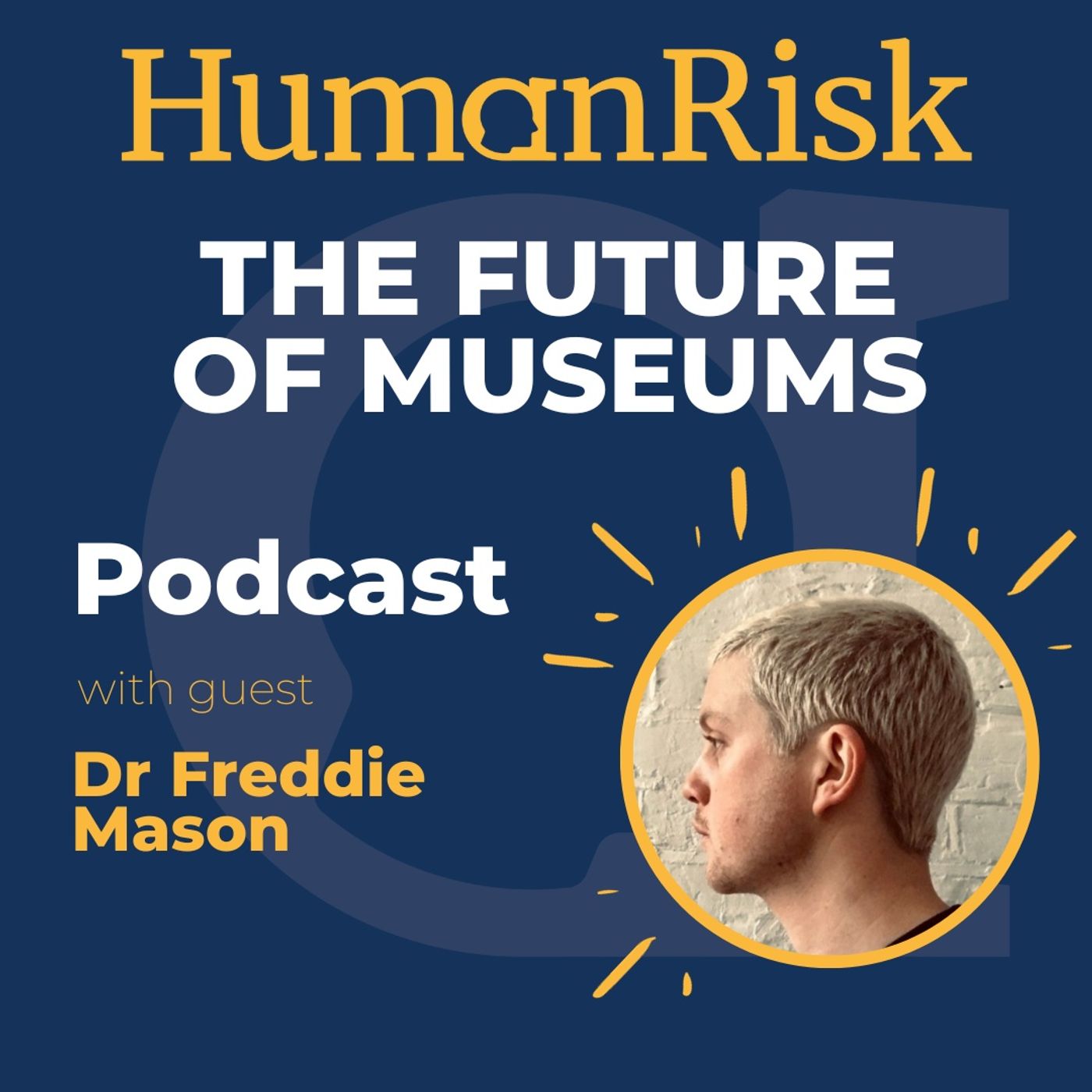

What are museums, and what purpose do they serve? As a regular museum-goer — both when I’m travelling and also at home when I need distraction or creative inspiration — I’m always intrigued, both by what they show and how they show it. If you’ve been following my COMPLIANCE IN THE WILD series on LinkedIn (example post here https://www.linkedin.com/posts/humanrisk_compliance-ethics-behaviouralscience-activity-7131940432715882496-kjJa) you’ll know that museums regularly feature as they often contain fabulous examples of Human Risk and the methods we use to mitigate it. My guest on this episode is DR FREDDIE MASON, who is a Senior Creative Strategist at Bompass and Parr and the author of a report on the future of museums. The report explores what a museum is, or rather, what it could be. BOMPAS & PARR are, in their own words, When they research something, it’s not your traditional piece of research because they also add creative flair to their findings. Which is why, in the report and on the show, you’ll hear some fascinating insights, including: __ __and much, much more. LINKS To learn more about Bompas & Parr: www.bompasandparr.com http://www.bompassandparr.com The report we discuss: https://bompasandparr.com/case-study/future-of-p-leisure-2024/ Freddie’s book on Viscosity: https://punctumbooks.com/people/freddie-mason/ To hear Alix Cherobrier (then Hope) talking about the future of experiences on the show in 2020: https://www.humanriskpodcast.com/alix-hope-on-fluid-landscapes/ To hear Professor Tom Schoessler talking on the show about deploying Behavioural Science in a Museum: https://www.humanriskpodcast.com/professor-tom-schossler-on-deploying/
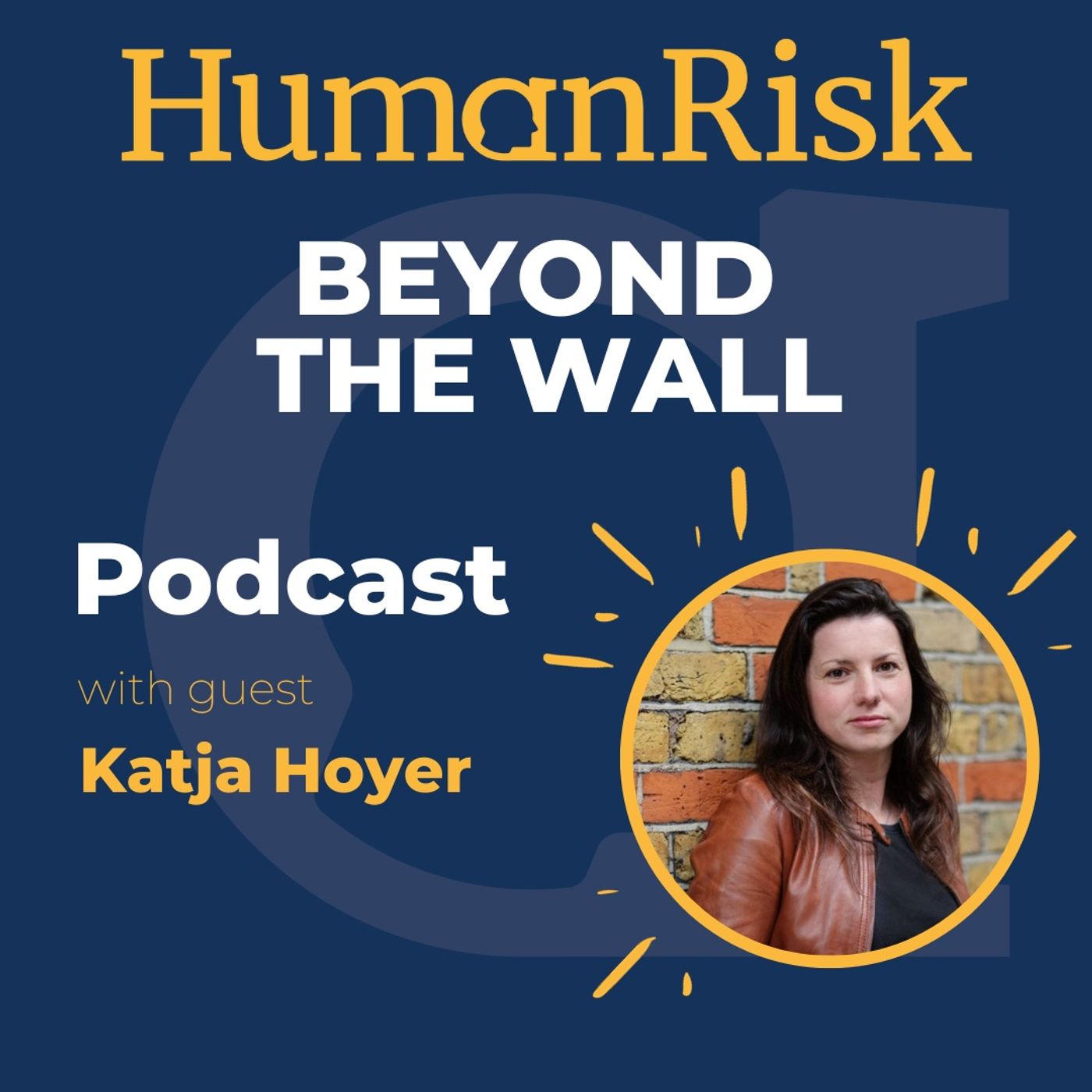

What is it like to grow up in a country that no longer exists? That's the challenge faced by my guest Katja Hoyer. She grew up in the GDR, the German Democratic Republic. Or as most of us think of it, East Germany. While most histories of the country focus on the political decision-making or things that are most extraordinary — for example, the Stasi, the East German secret police or dramatic escapes over the Berlin Wall — Katja wanted to write a more human history. In her book 'Beyond The Wall' or 'Jenseits der Mauer' in German translation, Katja explores not only the politics of the country, but also what life was like for people within the country. Since the book has been out for several months and there are lots of other shows on which you can hear about what's in it — though we do touch on a few human risk-relevant dynamics such as the challenges facing the Stasi in dealing with the information they gathered and the prevalence of paranoia within the country's leadership — I'm interested in the dynamics around the book, rather than the detail of what's in it. You'll hear: __ __and much, much more. ABOUT KATJA Katja Hoyer is a German-British historian, journalist and the author of the widely acclaimed Blood and Iron. A visiting Research Fellow at King's College London and a Fellow of the Royal Historical Society, she is a columnist for the Washington Post and hosts the podcast The New Germany together with Oliver Moody. She was born in East Germany and is now based in the UK. BEYOND THE WALL is published by Penguin books is available from all good bookstores: https://www.penguin.co.uk/books/447141/beyond-the-wall-by-hoyer-katja/9780241553787 DIESSEITS DER MAUER is published ny Hoffmann und Kampe and is also available from all good bookstores: https://hoffmann-und-campe.de/products/63884-diesseits-der-mauer SUBSTACK/PODCASTS: to learn more about Katja's writings and podcasts: katjahoyer.uk https://t.co/ToYLvjcZsx You can listen to 'The New Germany', the show she hosts with Oliver Moody here: https://koerber-stiftung.de/en/podcasts/history-politics/podcast-series-the-new-germany/ SOCIAL MEDIA: You can follow Katja on Twitter/X here: https://twitter.com/hoyer_kat? Her KINGS COLLEGE FACULTY PAGE is: https://www.kcl.ac.uk/people/katja-hoyer PODCASTS where Katja discusses her book: https://www.podbean.com/premium-podcast/travelsthroughtime/Ro9XbpH3jC2m https://audioboom.com/posts/8275986-katja-hoyer-beyond-the-wall https://www.spectator.co.uk/podcast/katja-hoyer-beyond-the-wall/ https://coldwarconversations.com/episode284/ https://www.spreaker.com/user/10740198/history-unplugged-beyond-the-wall-with-a DIRK OSCHMANN'S BOOK 'Der Osten: eine Westdeutsche Erfingung' https://www.ullstein.de/werke/der-osten-eine-westdeutsche-erfindung/hardcover/9783550202346
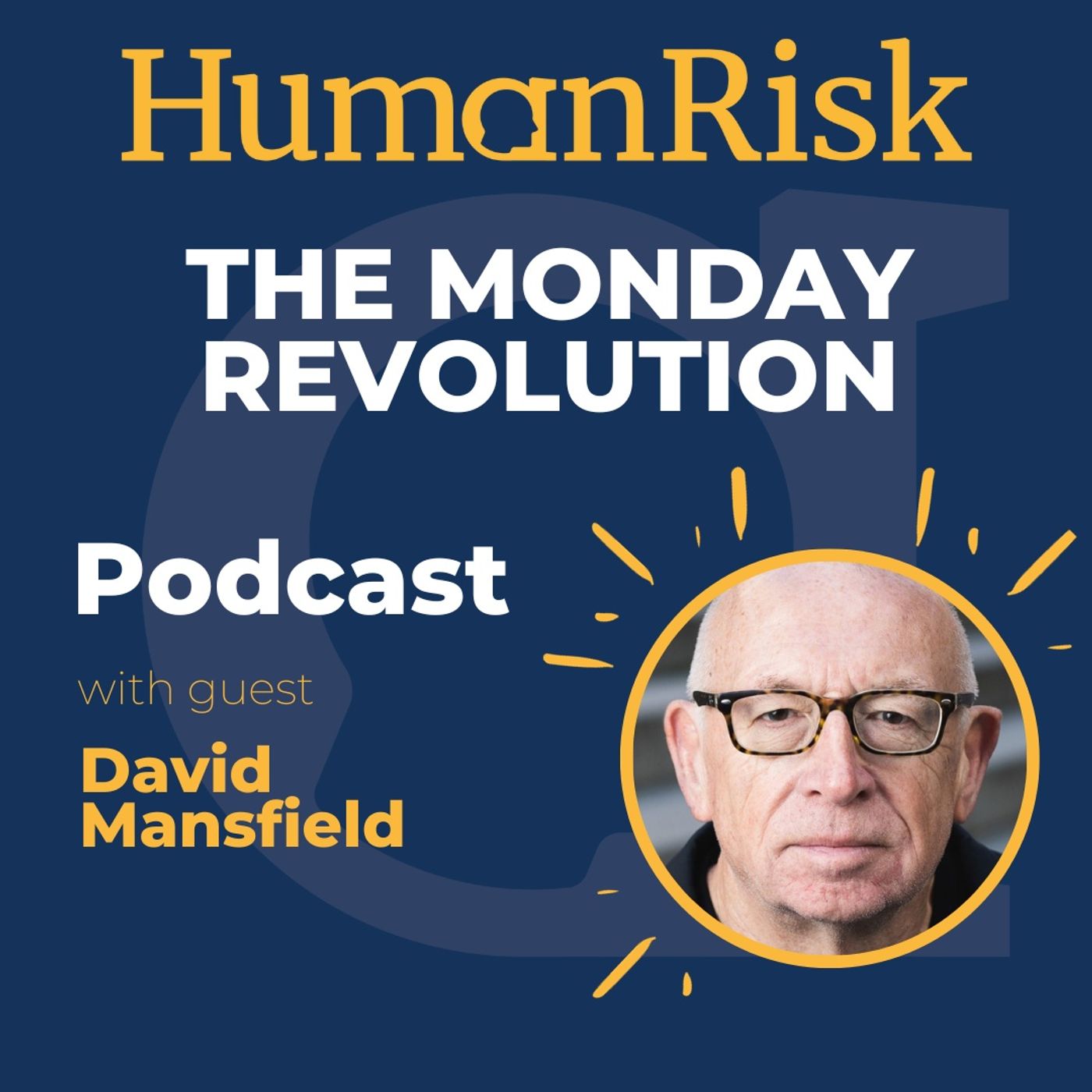

What is the MONDAY REVOLUTION, and why do we need it? On this episode, I'm speaking to someone who used to run a company that grabbed a lot of my attention during my teenage and younger years. That company was Capital Radio — at the time, London's largest radio station — and that person is DAVID MANSFIELD. After being CEO of Capital and its successor company, GCap Media, he went on to advise a number of other successful companies, including Carphone Warehouse and Game Group. Nowadays, as well as retaining roles within the radio industry, David is an investor, an accredited business coach, and an adviser to numerous companies. He's a Fellow of the Center for Evidence-Based Management and the Radio Academy and has been a Visiting Professor at the Bayes Business School in London and a Visiting Fellow at the University of Oxford. The Monday Revolution is the title of David's book and the name of his mission to simplify business behaviour and provide executives of all ranks and company sizes with the tools and approach to get more done. In our discussion, you’ll hear what the Monday Revolution is and why it’s’ called that. We explore David’s practical tips to making business more effective. We discuss risk management, how to empower staff, the benefits of asking the right questions in the right way, the importance of giving people agency and how to make better decisions. To learn more about David and the Monday Revolution, visit https://themondayrevolution.com/ On the show, we also talk about: JAMES CLEAR'S 'ATOMIC HABITS' — https://jamesclear.com/atomic-habits PROFESSOR DANIEL KAHNEMAN - https://kahneman.scholar.princeton.edu/
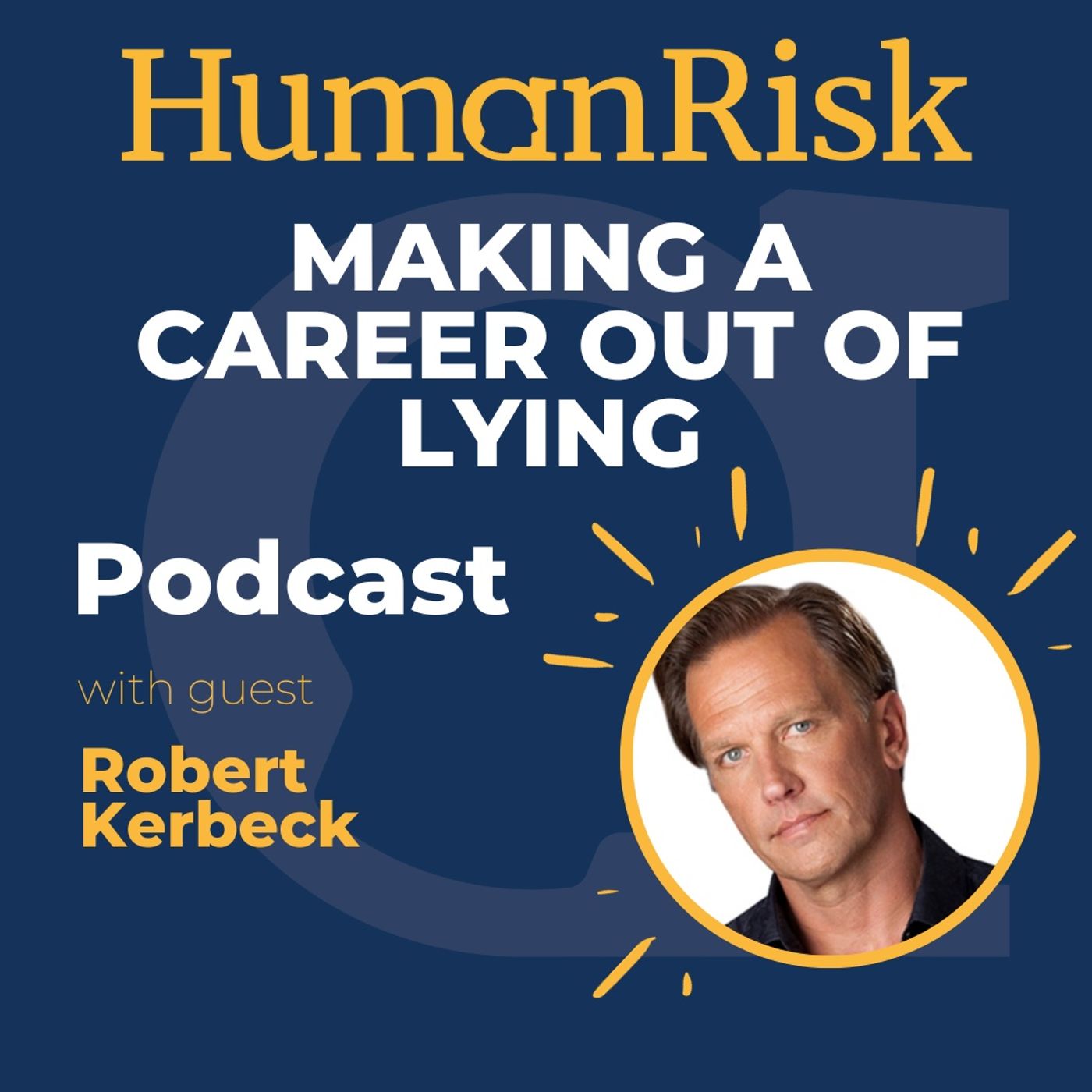

How can lying earn you millions? If you’re an actor and good at impersonating people, then the answer is that you become a corporate spy. That’s the unexpected career path followed by my guest ROBERT KERBECK, whose memoir ‘’ tells the story of how it happened. And on this episode, he joins me to talk about some of the behavioural dynamics behind his fascinating life. Robert didn’t grow up wanting to become a spy. He just wanted out of the family car business. An Ivy League education in his back pocket, he had a more noble profession in mind—to be an actor. But to support himself, he needed a survival job. And before he knew it, while his acting peers were waiting tables, he was beginning his apprenticeship as a corporate spy. In our discussion, we explore: __ __ and much, much more. To find out more about Robert and '’ visit www.robertkerbeck.com https://www.robertkerbeck.com
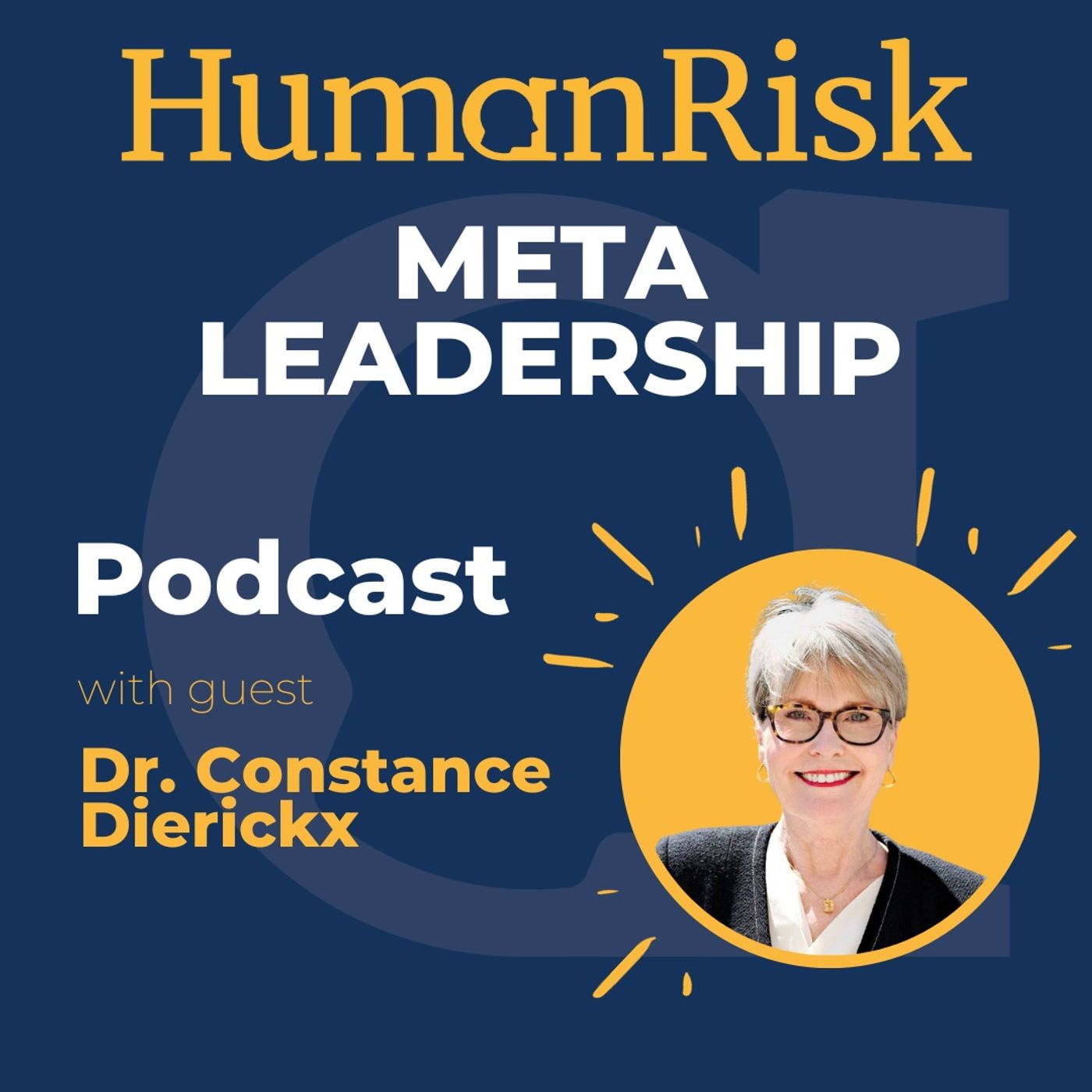

Why can senior leaders — usually in post as a result of experience and expertise — often make mistakes? The answer might seem counterintuitive; it’s precisely because of their experience and expertise that this can happen. How that happens and what we can do to mitigate it, the subject of this epsiode. My guest is DR CONSTANCE DIERICKX, who is also known as the DECISION DOCTOR. She’s also the authr of a new book called ‘META LEADERSHIP: HOW TO SEE WHAT OTHERS DON’T AND MAKE GREAT DECISIONS’. In her book and her work, Constance explores how congitive biases can impact sneior leader decision-making and what they can do to mitigate this. What applies to senior leaders also applies to the trest of us.. DISCUSSION TOPICS In our discussion, we explore: __ __RESOURCES For more information on Constance, her work and books, visit https://constancedierickx.com/. There you’ll also find a free meta-leadership self-assessment. To read her HBR article entitled ‘What-senior-executives-can-do-when-the-board-meddles’: https://hbr.org/2019/07/what-senior-executives-can-do-when-the-board-meddles
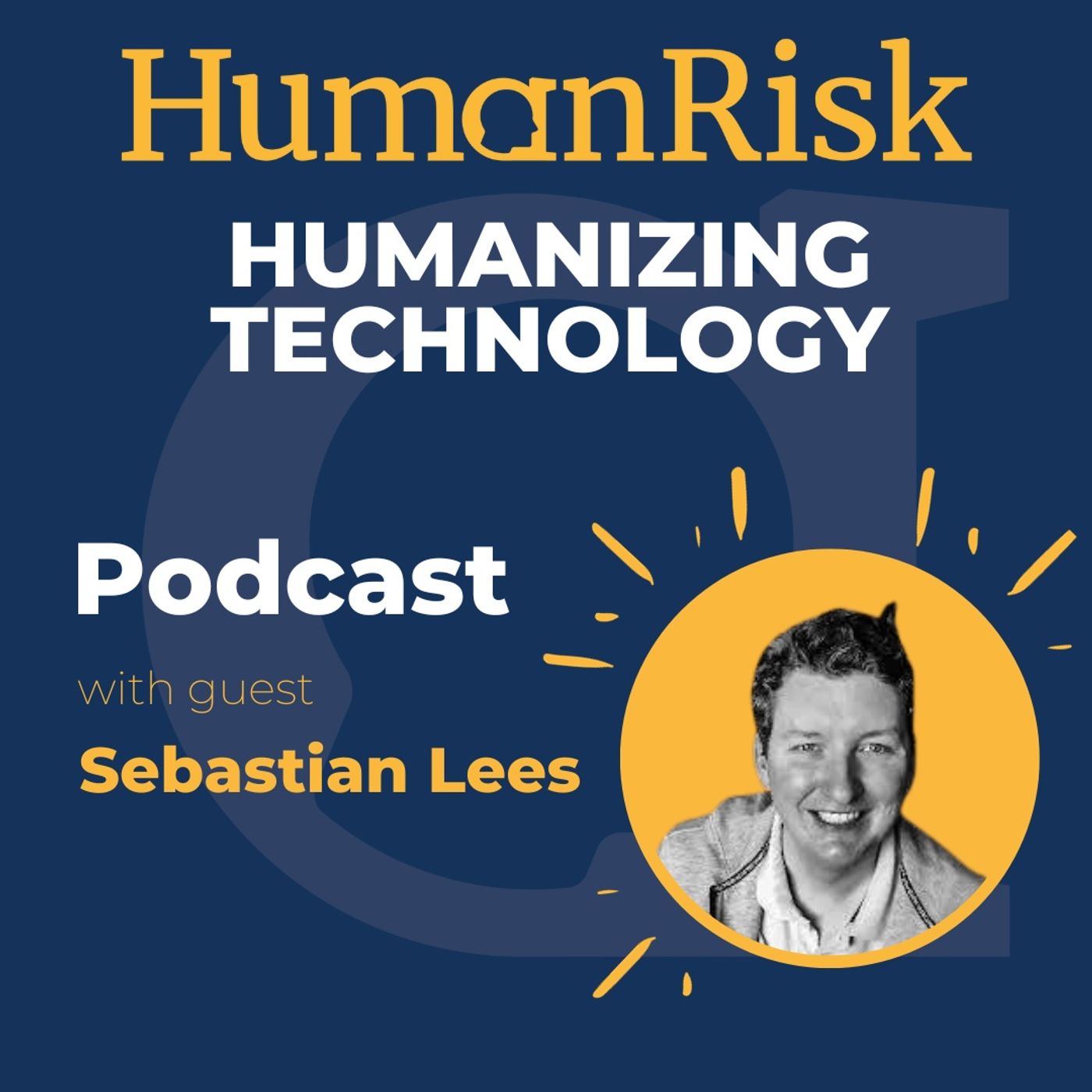

WHY IS SOME SOFTWARE A REAL PAIN TO USE? HOW DOES IT HAPPEN, AND WHAT CAN WE DO TO MAKE IT NOT HAPPEN? On this episode, I’m speaking with SEBASTIAN LEES, an experienced software developer with a keen interest in making things more human-centric. We often think of computers as making our lives easier and reducing human risk. Yet, poor design and a lack of thinking about the humans that will use it can actually increase rather than decrease human risk. In our discussion, amongst other things, we explore: __ __ For more on Seb, including links to Fat Tony’s and his social media accounts: https://sebs.website/ For more on Nassim Taleb: https://www.fooledbyrandomness.com/ To see the MALICIOUS COMPLIANCE Thread on Reddit: https://www.reddit.com/r/MaliciousCompliance/
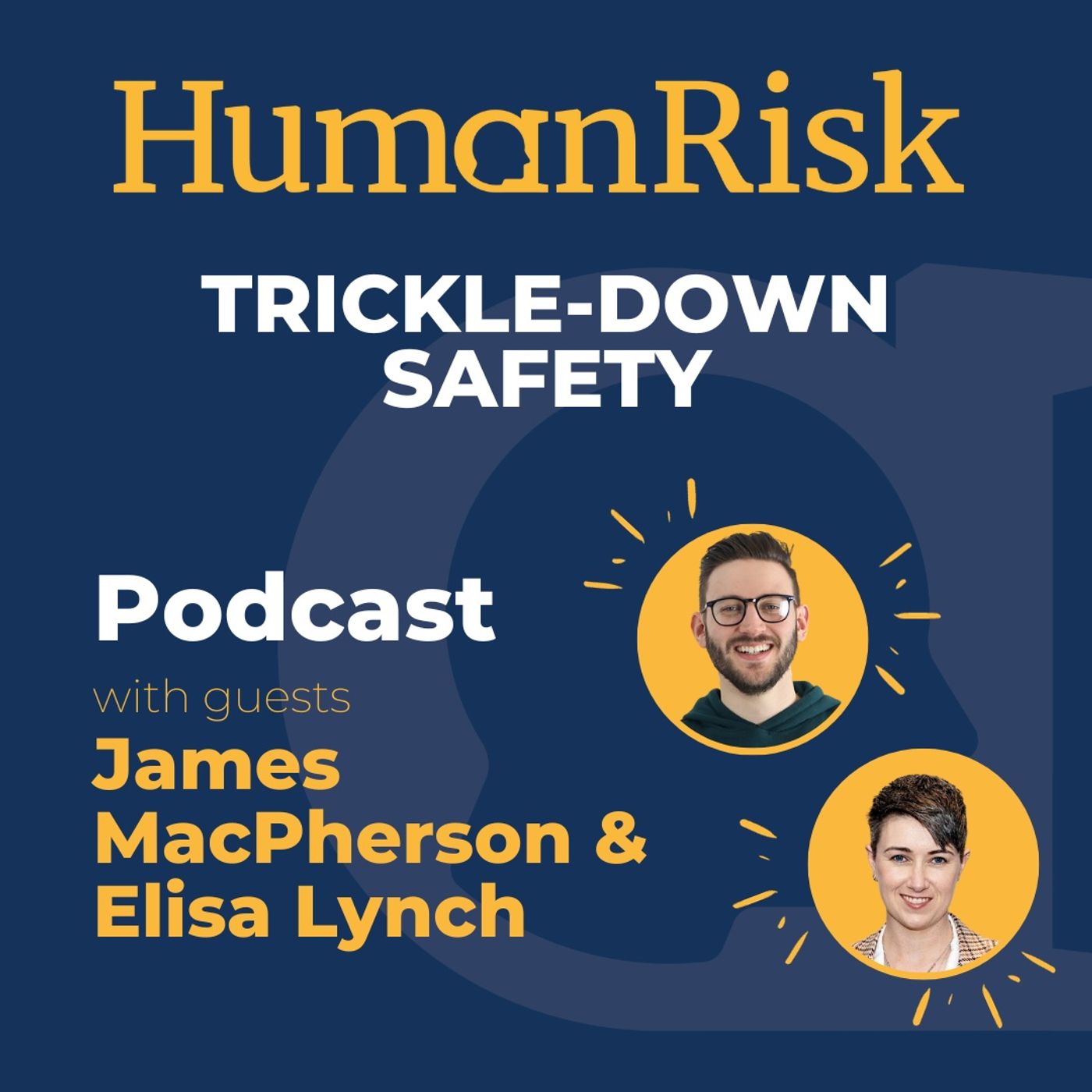

WHAT IS TRICKLE-DOWN SAFETY? On this episode, I’m finding out with two safety specialists who help me to explroe what it means and why it’s relevant to other fields. By safety, I mean the kind that saves people’s lives on building sites,not the cyber kind. My guests are JAMES MACPHERSON and ELISA LYNCH. JAMES is a safety professional who works across multiple industries, including manufacturing and construction. He operates his own consultancy called RISK FLUENT https://riskfluentltd.com/ and also runs an app called RISK ASSESSOR. https://www.riskassessor.net/ Additionally, he manages a community for safety people and hosts a podcast named REBRANDING SAFETY https://www.youtube.com/c/RebrandingSafety His work revolves around safety and risk management, and he is passionate about discussing and challenging the current safety standards and practices in businesses. Find James on LinkedIn: https://www.linkedin.com/in/jmacpherson1/ ELISA is also a safety professional with about a decade's experience, predominantly in construction safety. She is based in West Cork, Ireland. She co-hosts a podcast called SPEAK https://www.youtube.com/channel/UCzTuXj9E1Q_QCLiDBcEpzWQ/about! , where she and her co-host Crystal Danbury discuss various safety-related topics. As you'll hear on the show, Elisa is credited with coining the term 'trickle down safety', a concept that compares how safety standards and regulations from larger companies can impose burdensome requirements on small businesses. She is an advocate for creating safety standards that are more fitting and less stressful for small businesses. Find Elisa on LinkedIn: https://www.linkedin.com/in/elisalynch/ The podcast on which I first heard James talk about 'Trickle Down Safety' was the Slice podcast which you'll find here: https://www.youtube.com/watch?v=HRwjFV3YhCw SHOW CONTENTS On the show, we explore topics that include: __ __
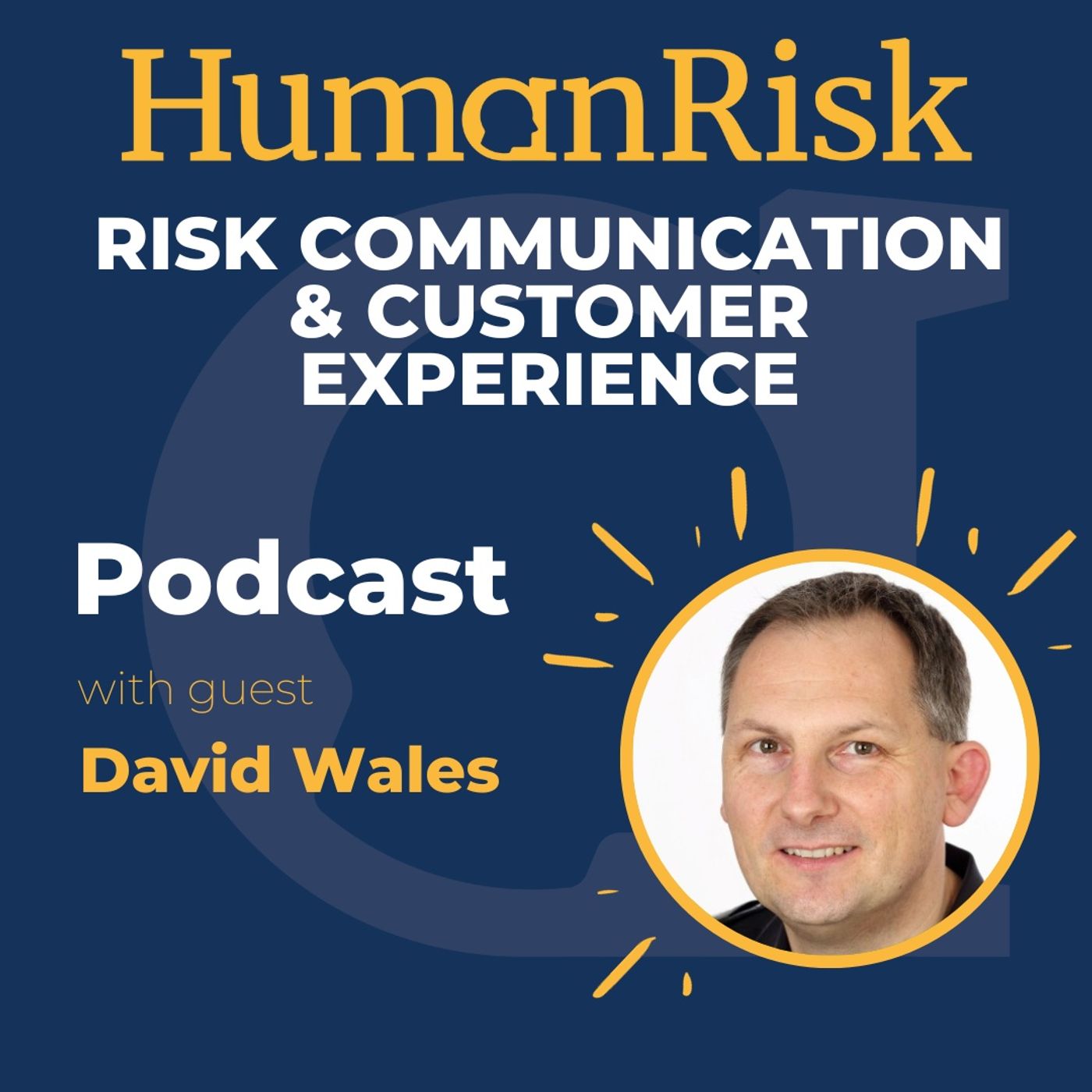

WHAT WE CAN LEARN ABOUT CUSTOMER SERVICE AND BEING MORE HUMAN FROM THE FIRE SERVICE? On this episode, I’m speaking with David Wales, who used to work in the fire and rescue service and has now switched to focus on product design and customer service. In his role in the fire and rescue service, David wanted to understand why people didn’t always do the things that they were told. For example, rushing into dangerous situations to rescue pets or laptops. What this reinforced is something that we all intuitively know; there’s a gap between the theory of what people should do and the realities of what they actually do. That means the advice people receive is often not helpful for the realities they’re facing. What makes sense to the fire service, in theory, might not match the realities of people’s personal experiences. That led him to a career in looking at customer experience, where the human touch is equally important. On the episode, we explore: __ __Links to topics we discussed: The Edelmann Trust Barometer: https://www.edelman.com/trust/trust-barometer Elton John’s donation of a piano to St Pancras Station in London: https://stpancras.com/news-events/sir-elton-john-s-piano John Legend playing the piano at St Pancras: https://www.standard.co.uk/showbiz/celebrity-news/john-legend-surprises-londoners-with-impromptu-performance-at-st-pancras-a3501956.html Find David on LinkedIn: https://www.linkedin.com/in/davidatsharedaim/ Shared Aim, David’s company: https://www.sharedaim.co.uk/
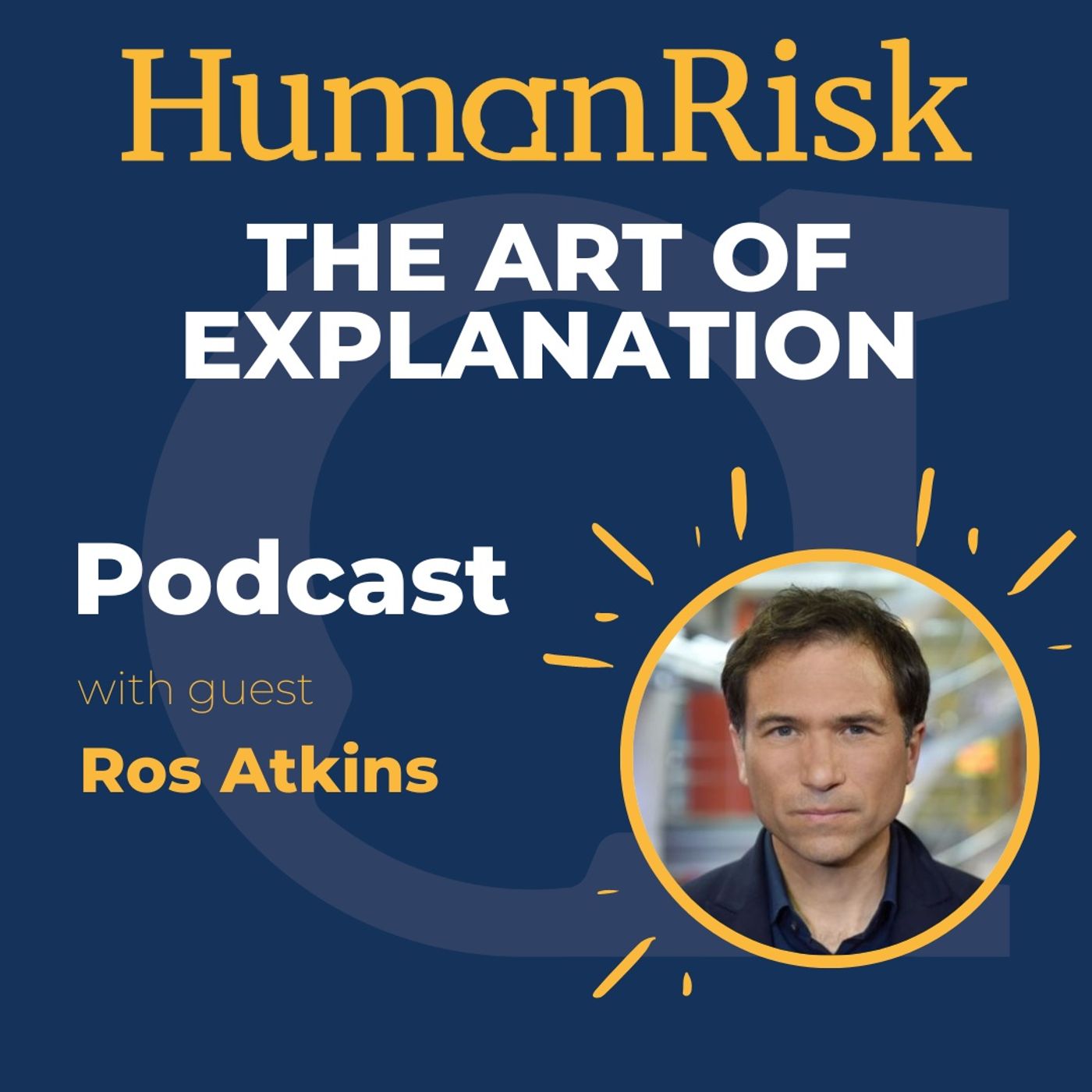

HOW CAN WE BE BETTER AT EXPLAINING THINGS? ON THE 250TH EPISODE OF THE PODCAST, I’M JOINED BY A VERY SPECIAL GUEST WHO HAS MADE EXPLAINING AN ART FORM AND HAS JUST PUBLISHED A BOOK CALLED ‘THE ART OF EXPLANATION’. That guest is ROS ATKINS. He’s a BBC News presenter and the BBC’s Analysis Editor. Ros is best known for his explainer videos, which, since 2019, have become a global phenomenon with vast audiences on social media and on the BBC's digital, TV and radio channels. His new book — full title ‘THE ART OF EXPLANATION: HOW TO COMMUNICATE WITH CLARITY AND CONFIDENCE’ — is part autobiography, part history of his explainer videos and a practical guide to how we can all be better at explaining things. I’ve been a fan of Ros’ videos and presentation style since first discovering them a few years ago. Not only have they made me smarter about the world, but the techniques he uses are engaging, informative and entertaining. So much so, in fact, that I’ve often found myself recommending to my clients that they watch them as masterclasses in how to make complicated subjects interesting and compelling. KEY TALKING POINTS: In our discussion, we explore: __ __and much more. ‘The Art of Explanation: How to Communicate with Clarity and Confidence’ To find out more about Ros’ book: geni.us/TAOEBOOK https://t.co/KaNohdb9ty KEITH JARRET KÖLN CONCERT Ros mentions a story about jazz musician Keith Jarrett and a concert Jarrett played in Köln, Germany. As he tells the story — which links to the Inheritance Tracks podcast below — Ros says that we must fact-check it. True to his reputation, after we’d finisjhed recording, he sent me this NPR link which appears to confirm the story: https://www.npr.org/transcripts/719557642 This piqued my curiosity, and I did further research and discovered that a reporter from — where else?! — the BBC – had looked into the Köln concert story. Not only did he confirm the facts, but he also managed to interview the concert promoter in question. You can hear the story here: https://www.bbc.co.uk/sounds/play/p00ldwyp You can hear the Köln concert — part 3 features on the Spotify playlist below — here: https://open.spotify.com/album/0I8vpSE1bSmysN2PhmHoQg?si=UkPi_oTXR7Grrrwc403Fxg ‘ART OF EXPLANATION’ PLAYLIST The Spotify playlist that features tracks from the book and podcast jointly curated by Ros and me: https://open.spotify.com/playlist/27ku9laOh8IantyEEdhTQa?si=fa1f8ca6d3cc41d1 TEXTING KEITH OLBERMANN PODCAST You’ll find Ros’ podcast ‘Texting Keith Olbermann’ here and on all podcast platforms: https://www.bbc.co.uk/programmes/p071wbr5 INHERITANCE TRACKS Hear Ros talking about Keith Jarrett’s Köln concert and Steely Dan’s Aja https://www.bbc.co.uk/programmes/p0g6c5bz The ‘Ros Atkins on…’ series https://www.bbc.co.uk/programmes/p095rjk1/episodes/player My absolute favourite of Ros’ Explainer videos is Ros Atkins on…The Number 10 Christmas Party: https://www.bbc.co.uk/news/av/uk-59514568
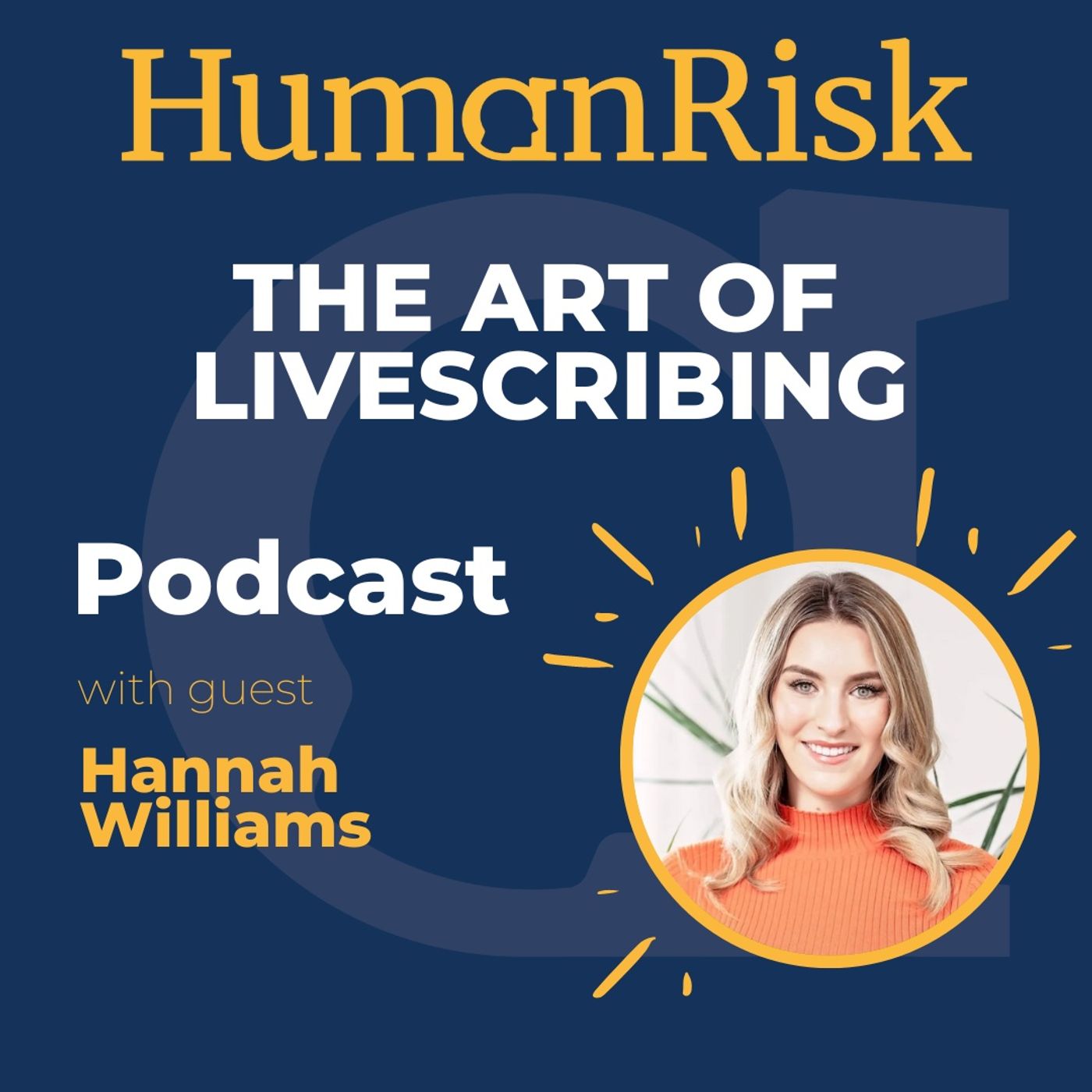

What is livescribing? On this episode, I speak to an artist with a unique creative talent. Hannah Williams is the founder of Scribble Inc. and her talent is that she can summarise presentations and discussions in beautiful pieces of art that fuse words and images. You'll find links to examples below. I met Hannah at a conference called Speak to the Human, an annual event, organised by Acteon Communication. You can read more about it here. https://www.acteoncommunication.com/landing-pages/speak-to-the-human-2023-change-and-disruption/ Hannah livescribed all the presentations and sessions that day, including mine. You can see a video of her in action here https://www.linkedin.com/posts/sarah-%20wightman_speaktothehuman-livescribe-activity-7076923351868272641-7jBhand the live scribe of my presentation here https://www.linkedin.com/posts/humanrisk_humanrisk-behaviouralscience-ethics-activity-7084426110259601409-DQ_w: https://www.linkedin.com/posts/humanrisk_humanrisk-behaviouralscience-ethics-activity-7084426110259601409-DQ_w The reason I wanted to get Hannah onto the show is because she has some fascinating perspectives from having spent hours observing humans and summarising their thoughts and ideas. Her lens on people can teach us a lot about human risk. In our discussion, we explore: __ __ and much, much more. You can find out more about Hannah and Scribble Inc and see examples of her work on the Scribble Inc website https://scribbleinc.co.uk/.
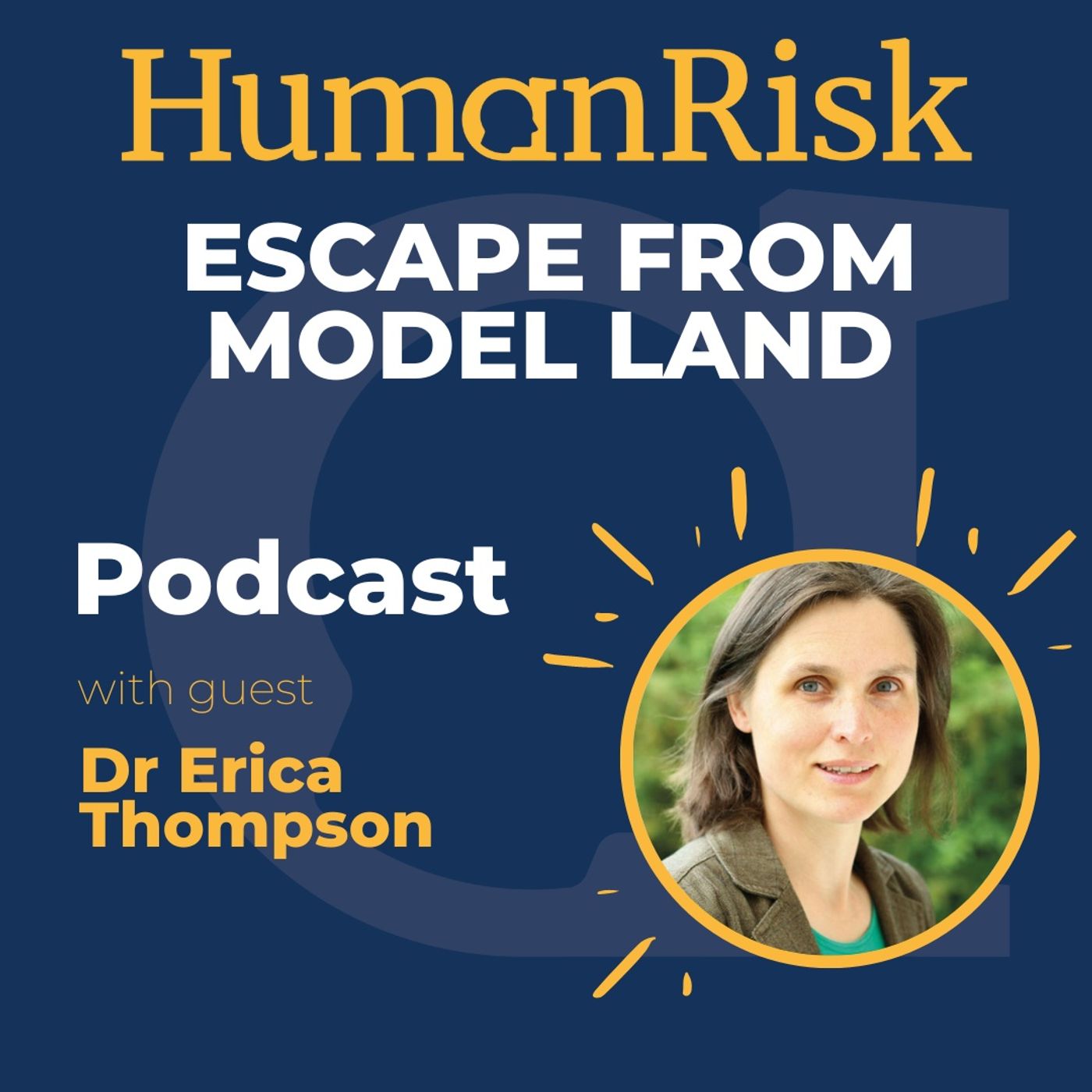

WHY ARE WE SO RELIANT ON MODELS, HOW CAN THEY LEAD US ASTRAY, AND WHAT CAN WE DO ABOUT IT? On this episode, I’m exploring models. Of the mathematical kind, not the fashion or toy kind. Models interest me because so much of our world is run by them. Many of the things we take for granted in the 21st century have models either running or helping to run them. When they work well, they enable things to happen that wouldn’t otherwise. But when they go wrong – as we’ve seen in the banking industry — there are serious consequences. The Human Risk angle on models is that models are designed, commissioned and used by people. As we know from people who blindly follow their GPS unit and drive into a river, we can often assume the models must be right. But what’s right in theory might not be in practice. The real world is often complex, and models don’t always capture nuances. My guest is Dr. Erica Thompson. She’s the author of a fascinating book called ‘Escape from Model land: How mathematical models can lead us astray and what we can do about it’. Erica is an Associate Professor of Modelling for Decision Making at University College Londons ’s Department of Science, Technology, Engineering and Public Policy https://www.ucl.ac.uk/steapp. She’s also a Fellow of the London Mathematical Laboratory http://lml.org.uk/, where she leads the research programme on Inference from Models https://www.ericathompson.co.uk/projects/inference-from-models/, and a Visiting Senior Fellow at the LSE Data Science Institute https://www.lse.ac.uk/DSI. So, she’s very highly qualified to help us explore what models are, why they can go wrong and what we can do about it. On the show, we talk about: __ __ To learn more about Erica, visit her personal website: https://www.ericathompson.co.uk/ For more on her book 'Escape from Model Land', visit https://www.ericathompson.co.uk/books/ To see episodes of the show you might have missed, visit www.humanriskpodcast.com
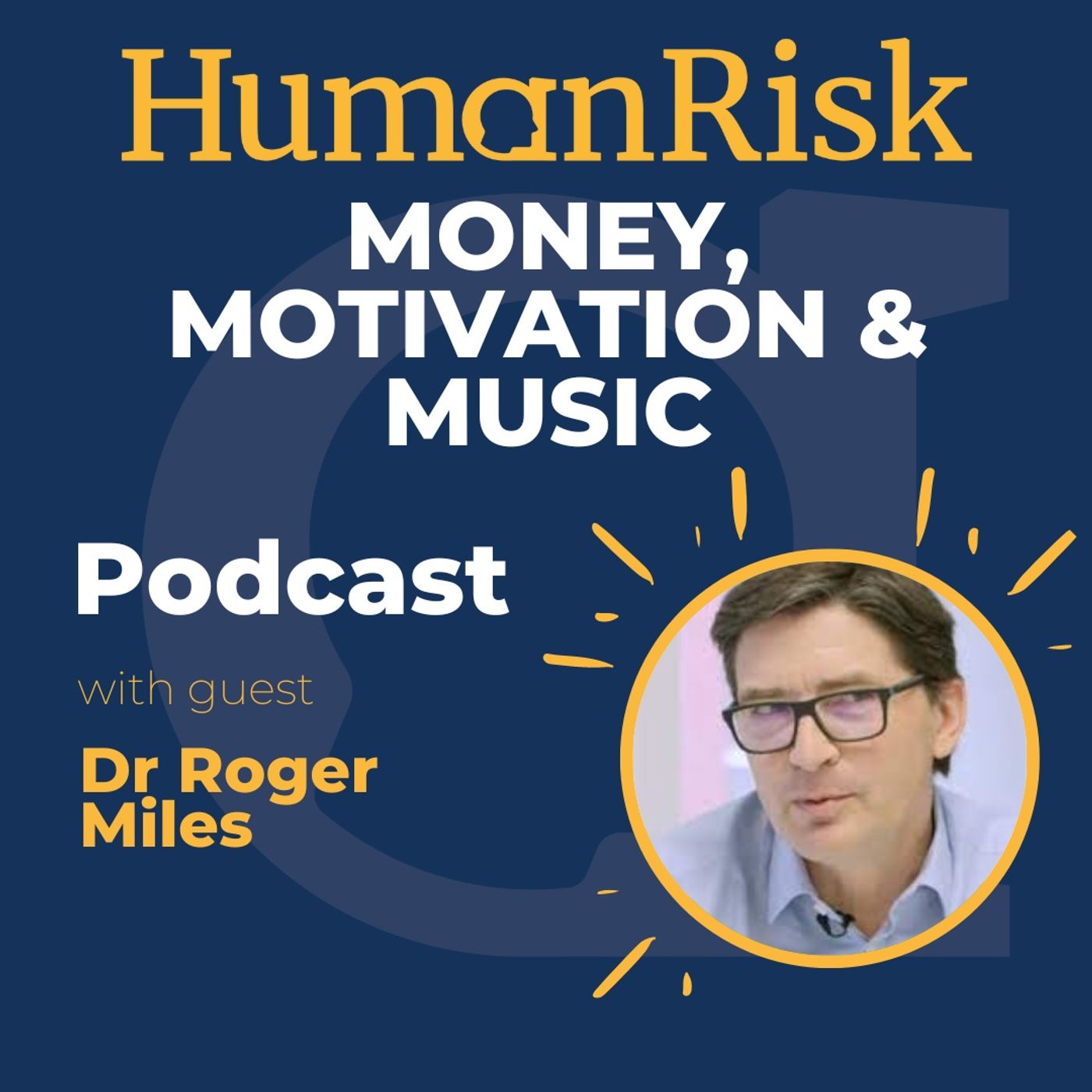

WHAT CAN MUSIC TEACH US ABOUT HUMAN BEHAVIOUR? WHAT IMPACT IS REMOTE AND HYBRID WORKING HAVING ON EMPLOYEE CONDUCT? HOW MIGHT WE MISJUDGE THE RISKS POSED BY AI? If these seem like a broad range of topics that have little in common, then you’re right and wrong. You’re right that they’re broad, but you’re wrong that they have little in common. My guest, Dr. Roger Miles, is a friend of the show — he’s been on it before (links to those episodes below) — and they’re all relevant to his work and interests. Since I was recording at the world-famous Abbey Road studios in London, I thought having music fan and musician Roger in the studio would be a good idea. Not just to hear from him about music but also to catch up on what he’s been doing and hear his insights on current affairs and recent trends. For more about Roger, visit his website: https://www.drrmiles.com/about His books: https://www.koganpage.com/authors/roger-miles To hear the previous times Roger has been on the show: Roger on Conduct Risk: https://www.humanriskpodcast.com/dr-roger-miles-on-conduct/ Roger on Conduct Risk under COVID: https://www.humanriskpodcast.com/human-risk-webinar-recording-conduct/ During the show, we talk about: The Barclays Bank ‘OccupEye’ tracking software: https://www.bloomberg.com/news/articles/2017-08-18/barclays-puts-in-sensors-to-see-which-bankers-are-at-their-desks Hannah Arendt: https://en.wikipedia.org/wiki/Hannah_Arendt Professor Barry Rider: https://www.jesus.cam.ac.uk/people/barry-rider-obe-phd-lld The Center for Human Technology: https://www.humanetech.com/ The famous train accident in Paris where the train literally left the station; https://www.midnight-trains.com/post/the-railway-disaster-at-the-gare-montparnasse The VIP killed by the train he was there to launch: https://www.theguardian.com/theguardian/from-the-archive-blog/2011/may/06/newspapers-national-newspapers2? https://www.theguardian.com/theguardian/from-the-archive-blog/2011/may/06/newspapers-national-newspapers2 The FInancial Markets Standards Board Behavioural Cluster Analysis: https://fmsb.com/wp-content/uploads/2018/07/BCA_v32_1.pdf ‘Metaphors We Live By’ by George Lakoff and Mark Johnson: https://en.wikipedia.org/wiki/Metaphors_We_Live_By Diane Vaughan’s book on the Challenger disaster ‘The Challenger Launch Decision’ - https://press.uchicago.edu/ucp/books/book/chicago/C/bo22781921.html The review of conduct in London’s Metropolitan Police Force: https://www.bbc.co.uk/news/topics/cw9d1pgzlyvt The corporate violation tracker: https://www.bbc.co.uk/news/topics/cw9d1pgzlyvt The British Post Office Scandal: https://www.postofficescandal.uk/ You can hear Nick Wallis talk about his book on the scandal on this show: https://www.humanriskpodcast.com/nick-wallis-on-the-great-post-office-scandal/ ‘The Blunders of Our Governments’ by Anthony King and Ivor Crewe: https://www.simonandschuster.co.uk/books/The-Blunders-of-Our-Governments/Anthony-King/9781780746180
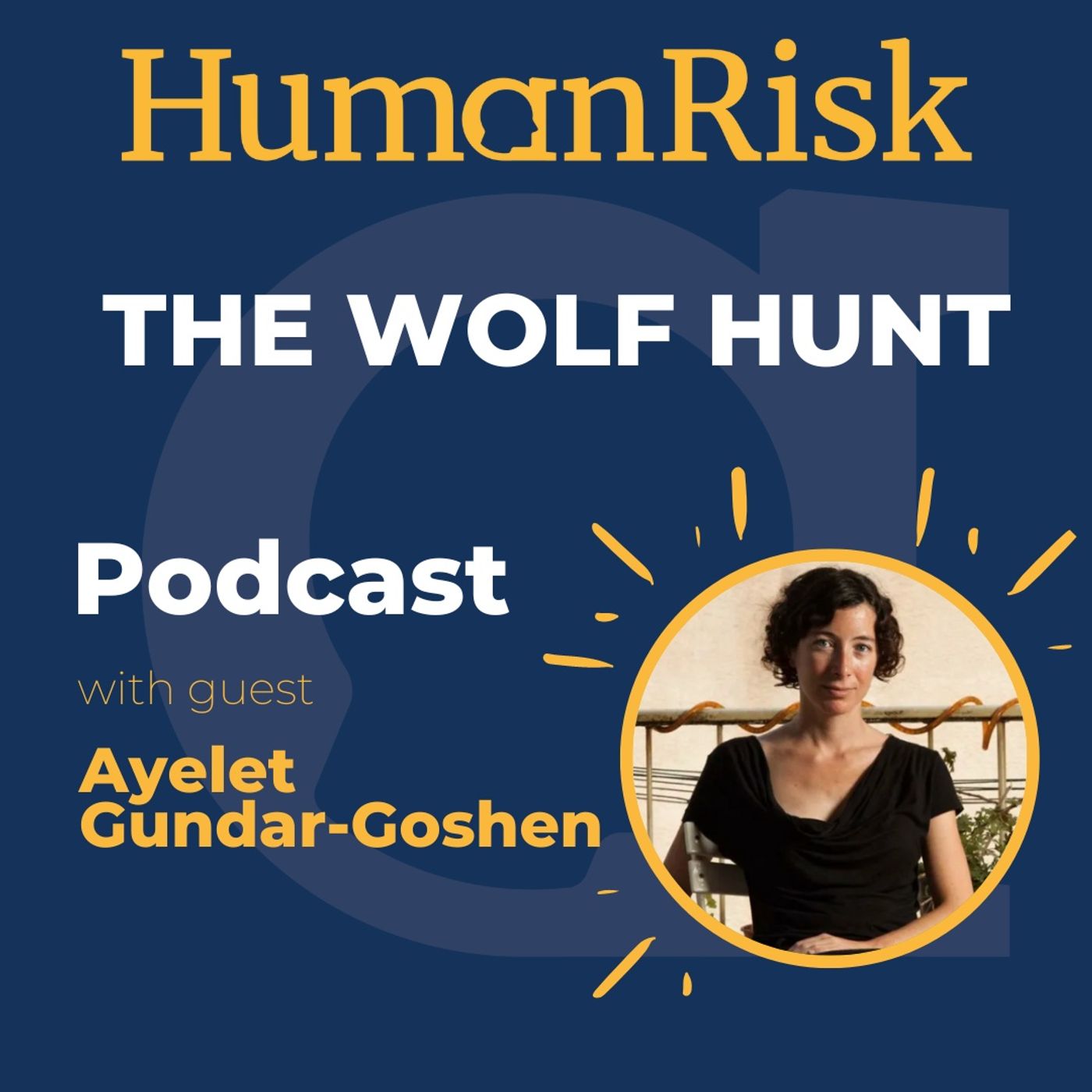

HOW WELL DO WE REALLY KNOW THOSE WHO ARE CLOSEST TO US? That’s the question that is behind ‘THE WOLF HUNT’, a new novel by Israeli author AYELET GUNDAR-GOSHEN. She's my guest on this very special episode. In a first for the show, I’m interviewing the author of a piece of fiction. Ayelet isn’t just a writer. She’s also a clinical psychologist, which informs both her content and the way in which she writes her narratives. The Wolf Hunt is the story of a mother who begins to suspect her teenage son of committing a terrible crime. Lilach, the main protagonist, seems to have it all: a beautiful home in the heart of Silicon Valley, a community of other Israeli immigrants, a happy marriage and a close relationship with her teenage son, Adam. But when a local synagogue is brutally attacked, her shy, reclusive son is compelled to join a self-defence class taught by a former Israeli Special Forces officer. Then, a Black teenager dies at a house party, and rumours begin to circulate that Adam and his new friends might have been involved. As scrutiny begins to invade Lilach's peaceful home and her family’s stability is threatened, will her own fears be the greatest danger of all? It’s a fascinating and engaging storyline. And, as you’ll hear, it was inspired by a simple question Ayelet asked herself when she was dropping her daughter off at school. In our discussion, we explore: __ __And so much more. For more on The Wolf Hunt, visit https://pushkinpress.com/books/the-wolf-hunt/. https://pushkinpress.com/books/the-wolf-hunt/ It's available in all major bookstores. To read articles she's written for Time magazine: https://time.com/author/ayelet-gundar-goshen-2/ Since this is the first fiction writer I've had on the show, let me know what you think about the idea of doing more of this type of interview. If you like it, should it be part of the main show or a separate one? If you don't, why not!
